

What Questions Should You Ask when on a Virtual College Tour?
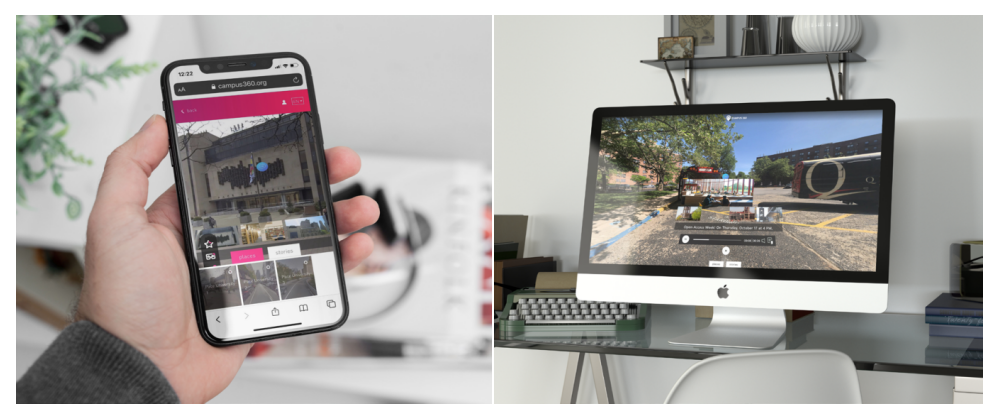
Not only are virtual campus tours a great way to see the campus and get a feel for the culture, but they’re also a great way to meet someone from the school, usually an admissions officer, a student, or an alumnus, and pick their brain. A virtual campus tour could be your one and only chance to speak to someone who will be living the life you’re looking at in a year or two, so make the most of it! So, what are the best questions to ask on virtual college tours?
1. What is your usual daily schedule like?
2. What is the average size of introductory courses and courses in your major? (Keep in mind that majors often have different size classes when you get to upper-level courses, but this could be a good benchmark)
3. Ask about your particular hobbies. What’s the culture for x on campus?
4. Why did you choose this school?
5. How accessible are professors and administrators to students?
6. What percentage of your courses are taught by professors vs. TAs?
7. How easy is it to study abroad?
8. What is the connection like with alumni network? Some virtual campus tours have an alumni ambassador present. Get to know their experience with a particular school or major.
9. How is the food? Are there options?
10. How long is a student required to live on campus? How difficult is it to get on-campus housing as an upper-classman?
11. What are the best study spots on campus and why?
12. How much time do you spend on classwork and how much on extracurriculars and socialization?
13. How big are sports on campus?
14. How diverse is the student body? The faculty?
15. How safe do you feel on campus and surrounding areas?
16. How easy is it to find and balance an on-campus job?
17. What is the course-selection process like?
18. How often are you fighting for spots in a class?
19. How many options are there for courses within your major?
20. How difficult is it to take classes outside of your major?
21. How far are residences from classes on average?
22. What are the best restaurants around campus, how far are they, and how late are they open (that last one is key)?
23. How late are facilities like cafeterias, libraries, gyms, and study centers open?
24. What are the places in the city/ town around campus that you HAVE to see?
25. What are some quintessential parts of the culture on your campus? What are some hallmark experiences of attending that school?
26. What are your favorite things about the school?
27. What do you not like?
Now you’re all ready to go on your Campus 360 tour to explore your favorite schools from the comfort of your home! Keep in mind that the virtual tour guide has a job to do, so don’t pester them; pick a few questions that are most important to you, (see if you can find the information on the internet first), and if they don’t already cover them in the tour, ask! That’s what they’re there for. And be sure to introduce yourself! You never know, they could end up being your TA next year!
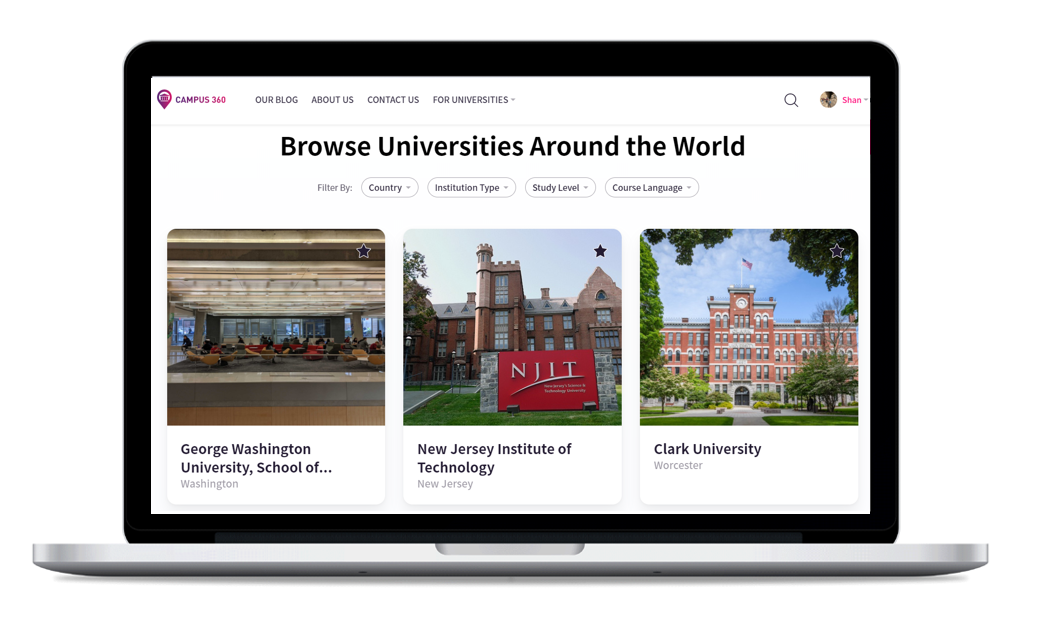
Join Campus 360
Already have an Account? Login
By creating an account, you agree to Terms of service and Privacy Policy
Forgot Password?
Don't have an Account? Sign Up
Forgot Password
Enter your registered email below to receive password reset instruction
Email has been sent
Please check your inbox and click in the received link to reset the password
Login or sign up to be automatically entered into our next $10,000 scholarship giveaway
Get Searching
- College Search
- College Search Map
- Graduate Programs
- Featured Colleges
- Scholarship Search
- Lists & Rankings
Articles & Advice
- Ask the Experts
- Campus Visits
- Catholic Colleges and Universities
- Christian Colleges and Universities
- College Admission
- College Athletics
- College Diversity
- Counselors and Consultants
- Education and Teaching
- Financial Aid
- Graduate School
- Health and Medicine
- International Students
- Internships and Careers
- Majors and Academics
- Performing and Visual Arts
- Public Colleges and Universities
- Science and Engineering
- Student Life
- Transfer Students
- Why CollegeXpress
- $10,000 Scholarship
- CollegeXpress Store
- Corporate Website
- Terms of Use
- Privacy Policy
- CA and EU Privacy Policy
Articles & Advice > Campus Visits > Blog

10 Questions to Ask to Get the Most Out of a Virtual College Tour
There’s nothing wrong with opting for virtual tours over in-person ones to save money. But make sure you’re asking these questions during your online visits!
by Callie McGill Content Marketer, ValuePenguin.com
Last Updated: Aug 9, 2023
Originally Posted: Apr 21, 2022
You’ve heard about saving for college, but what about saving for college tours? According to IST Campus Tours, an independent student travel tour service, families with college-bound students can spend up to $3,500 just for a campus visit . With the cost of air travel, meals, and accommodations adding up, virtual tours are a good option for those who can’t swing in-person visits. However, since you won’t be able to wander around campus or ask random students about their experiences, preparing creative and nuanced questions is essential.
If you’re unable to visit a prospective college but have the opportunity to speak with a representative over video chat, avoid asking questions that you can easily find the answers to online. For example, asking “How many students go here?” can easily be found in the college’s pamphlets and guidebooks. Instead, try these questions to get a deeper understanding of whether the campus is a good fit for you.
1. What student facilities does the school offer and what’s their condition?
Chances are you’ve seen photos, curated videos, and virtual tours of the most attractive parts of the colleges and universities that interest you, like new state-of-the-art athletic fields. This question goes a step further by asking for a rundown of the academic and student life facilities your tuition will pay for: the student gym, library, career center, computer labs, and more—and how they’re maintained, which gives you an idea of the school’s priorities.
2. What types of student organizations are popular?
Whether you’re interested in intramural sports, academic organizations, or social groups, knowing which organizations and clubs that students flock to can help you make new connections and develop a fulfilling life on campus. If you’re curious about participating in a fraternity or sorority, for instance, this question can help you understand how prominent these organizations are at a school. If a college doesn’t offer a certain extracurricular you’re interested in or doesn’t allow students to create their own groups, you might want to consider ones that do.
Related: College Organizations and Activities Worth Getting Excited Over
3. Are classes taught by professors or teaching assistants?
Although you’ll receive credit for successfully completing a course regardless of whether a professor or a TA leads the curriculum, you may prefer one over the other. For example, if you decide to attend a particular school because of its stellar Creative Writing program and it just hired a best-selling author to teach classes, you’ll want to make sure you don’t end up in a class taught by a TA instead.
4. How accessible are the school’s faculty and staff?
As a college student, you’re bound to need additional help outside of the classroom. You might have follow-up questions after a lecture or need guidance on paying tuition, especially if you’ve taken on a lot of debt to pay for school. Knowing when and where staff will be available can help you understand whether getting the help and resources you need is straightforward or a pain to schedule.
Related: How to Find a Great College With Amazing Professors
5. What’s the on-campus freshman experience like?
No matter where you enroll, there will be a notable transition from high school to college life. Asking about what life on campus is like for first-year students can point you toward unknown resources, school-sponsored events, and special activities exclusively for entering freshmen. These are all great ways to make friends in college, which will also make the transition easier.
6. What’s the surrounding community like?
Although you can choose to spend your time exclusively on campus during the academic year, most students venture beyond school boundaries at some point. Learn about the overall community vibe and the different activities students partake in off campus. Is the school within a reasonable walking distance to a public beach? Is the area an established college town with affordable restaurants, cafés, and shops? And even better, do these places offer student discounts?
Related: Spotlight on 3 Great College Cities on the East Coast
7. Does the school offer valuable health services?
Aside from maintaining good academic standing, you’ll need to ensure you stay healthy at any college. Health-related costs can put a dent in your budget, but many campuses have an on-site health services office. Ask about the type of services students can access (e.g., mental health counseling, annual physical examinations, etc.). You’ll also want to know about the process required to get support—from making an appointment to what you can expect the day of and the quality of follow-up communication.
8. What’s the class registration experience like?
Registering for classes is a critical part of the college experience. However, securing your ideal class schedule isn’t always guaranteed, particularly if you work part-time and have a less flexible schedule. This process can also be challenging if you’re eager to get into a high-demand class, register with a high-rated professor, or if a school simply doesn’t offer enough seats for a required class. Digging into current students’ class registration experiences—from logistics to competitiveness—can help you understand how likely you are to get the academic experience you want.
Related: 3 Simple Steps to Become a Course Registration Master
9. What on-campus safety measures are in place?
Aside from ensuring the college checks out academically and socially, you’ll want to know about on-campus safety practices and how school administrators respond to problems. For example, does campus police offer an after-hours escort service? This could offer peace of mind if you pull late study hours at the library and would like a guard to walk you to your dorm. Similarly, you can learn about how frequently patrols are conducted and where 911 call boxes are located. Beyond safety measures, how do staff respond to simple or serious issues? Asking this question will help you examine current students’ concerns, from campus sexual assault allegations to on-campus student wage protests . The answers you receive will shed light on how a college’s faculty and staff address these issues and whether students’ voices are heard in a meaningful way.
10. What’s something unexpected you had to adjust to here?
This type of open-ended question gives the responder a chance to share their personal experiences with the college. The answers may identify dealbreakers you didn’t know you had, like no free campus transportation, or offer insight into clubs or activities that make the school even more appealing. Real stories about life at a school can beat any number on a page when it comes to making your final college decision.
Related: How Can I Make the Transition to College Easier?
You can get just as much out of virtual college tours as you can visiting in person, but only if you ask the right questions. Engage in every online event and take advantage of every resource possible to really get to know your colleges of interest. You’ll make your final decision with confidence knowing that you found a great school to attend.
Whether you’re visiting in person or online, check out all Our Best Advice for College Tours and Campus Visits to be fully prepared for either experience.
Like what you’re reading?
Join the CollegeXpress community! Create a free account and we’ll notify you about new articles, scholarship deadlines, and more.
Tags: campus visits college search college tours virtual tours virtual visits
← Previous Post
Next Post →
About Callie McGill
Callie McGill is a Content Marketer for ValuePenguin.com .
Join our community of over 5 million students!
CollegeXpress has everything you need to simplify your college search, get connected to schools, and find your perfect fit.

Keydi Banegas
Scholarship for Students of Color Winner, Class of 2022
CollegeXpress is a great application that helped me search for many different scholarships, and it narrows the scholarships depending on how you set your profile. Not only that, but it helps you choose different colleges to apply to by finding matches through the description of your profile. It was the best experience for me.

Laura Wallace
High School Class of 2019
My favorite part of CollegeXpress is that it features student writers so I get an inside perspective from students slightly older and farther along than me. I realize that other college websites also utilize student writers; however, I relate the most to the college writers that I read articles from on CollegeXpress.
Kory Gilbertson
High School Class of 2022
CollegeXpress has helped me explore my views on college in that "why do I wanna go to a certain school" way. It’s helped me explore the best fits in all of these outstanding choices. All these college admission counselors can access my accolades showing them how I could help their college. This source of information helps me show these admission directors who I am and what I'm interested in. Thanks to this platform, my experience for education will be better than most, and I'm so grateful for all that it has provided for me.

Melanie Kajy
High School Class of 2021
CollegeXpress has helped me tremendously during my senior year of high school. I started off using the college search to find more information about the universities I was interested in. Just this tool alone gave me so much information about a particular school. It was my one-stop shop to learn about college. I was able to find information about college tuition, school rank, majors, and so much more that I can't list it all. The college search tool has helped me narrow down which college I want to attend, and it made a stressful process surprisingly not so stressful. I then moved to the scholarship search tool to find scholarships to apply for because I can't afford to pay for tuition myself. The search tool helped me find scholarships that I was eligible for. The tool gave me all the information I could ever need about a particular scholarship that was being offered. The CollegeXpress scholarship search tool is so much better than other tools offered, like the Chegg scholarship search. Thanks to CollegeXpress, I was able to apply to tons of scholarships in a relatively easy way!

Jada Bohanon
CollegeXpress has helped me find scholarships for the colleges I applied to. It was very hard for me to find scholarships in the beginning that I was qualified for. My teachers recommended this website to find some, and not only did I find some scholarships but I also got to look into some schools I hadn’t heard of before. I was very happy to have discovered this website, especially with the coronavirus spreading all over as I can’t really go visit many colleges.
Colleges You May Be Interested In
The University of Tampa
Eckerd College
St. Petersburg, FL
Oral Roberts University
Hillsdale College
Hillsdale, MI
Dallas Baptist University
Personalize your experience on CollegeXpress.
With this information, we'll do our best to display content relevant to your interests. By subscribing, you agree to receive CollegeXpress emails and to make your information available to colleges and universities, scholarship programs, and other companies that have relevant/related offers.
Already have an account?
Log in to be directly connected to
Not a CollegeXpress user?
Don't want to register.
Provide your information below to connect with
Our focused blog section talks about immersive technology developments, industry applications of simulation and much more.
A guide to virtual college tours: exploring campuses from anywhere.
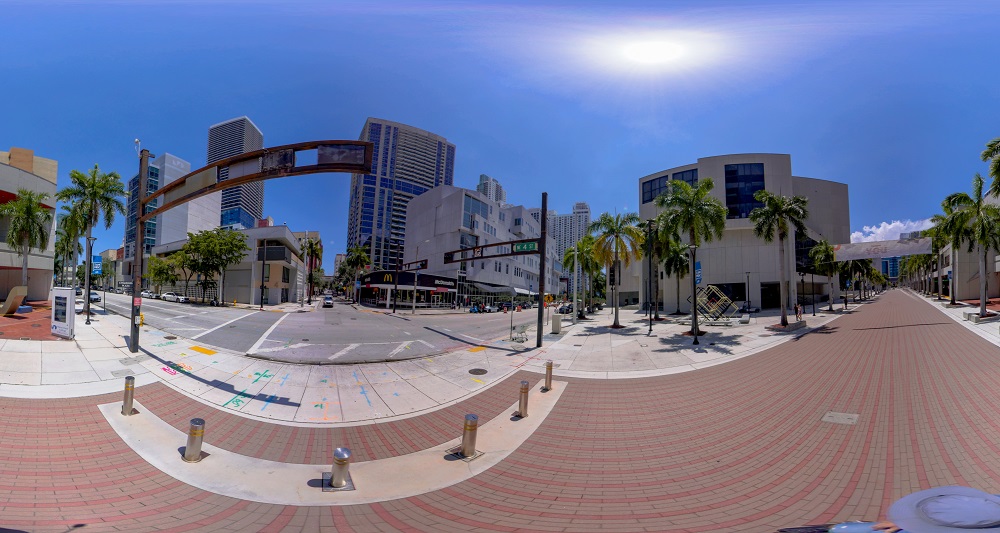
Picking the right college is one of the most significant decisions you'll make as you prepare to take the next step in your educational journey after completing high school.
In the past, campus tours provided an invaluable firsthand experience, allowing prospective students to soak in the atmosphere and culture of each institution. However, with the challenges presented by the COVID-19 pandemic and other constraints, traditional campus tours have been limited.
Thankfully, the rise of virtual college tours, including Virtual Reality campus tours, has ushered in a new era of college exploration, opening up a world of possibilities for students from all corners of the globe.
Virtual college tours present a unique opportunity for exploration, as they enable students to delve into many campuses from the comfort of their own homes. With a simple click, you can stroll through historic halls, witness vibrant campus life, and even experience academic facilities as if you were physically present.
These tours provide a rich array of content, including 360-degree videos, interactive maps, and live guides who offer valuable insights into college life.
In this guide, we will delve into the transformative power of virtual college tours, which have evolved into immersive and interactive experiences, offering a wealth of benefits for prospective students. So, Let’s begin.
What are Virtual College Tours?
Virtual college tours are not just a mere substitute for physical visits. Instead, they offer much more than just a glimpse of the campus!
Through online content and virtual experiences, you can immerse yourself in the college's culture, engage with tour guides, and connect with current students or alumni.
What are the benefits of a Virtual Campus Tour?
While the absence of in-person visits may seem disappointing, it's essential to recognize the numerous benefits that virtual tours bring to the table. Some of them are-
1. Accessibility
Imagine this! You don't have to travel far or worry about time constraints for exploring campuses.
With virtual tours, you can do it from anywhere in the world!
Virtual tours allow students to explore campuses from anywhere in the world, eliminating the need for travel and reducing associated costs and time constraints. This level of accessibility is particularly advantageous for international or out-of-state students who may find it challenging to visit colleges in person due to distance, financial limitations, or visa restrictions.
Not only this, but the virtual tours also break down geographical barriers, offering a unique opportunity for prospective students to gain insights into various colleges without leaving their homes. This convenience empowers students to explore a broader range of institutions, facilitating a more informed decision-making process.
Moreover, virtual tours ensure inclusivity by catering to individuals with physical disabilities or mobility limitations, providing them with equal access for exploring campuses and making educational choices.
Also Read, The Future of Healthcare: Transforming the Patient Experience with Immersive Technologies
2. Cost-Effective
Speaking of costs, virtual tours are a fantastic money-saving option.
Virtual college campus tours save students and their families the expenses related to travel, accommodation, and other costs associated with in-person campus visits.
This cost-effectiveness enables students to explore multiple colleges without breaking the bank. It is particularly advantageous for international or out-of-state students who might otherwise face substantial financial burdens to visit colleges in person.
Additionally, the reduced costs associated with virtual tours empower students to allocate their resources more efficiently, focusing on other essential aspects of their college application process.
Overall, being cost-effective, virtual college tours democratize the college exploration process, ensuring that students from all backgrounds can make informed decisions about their future without financial constraints.
3. Time Efficiency
Unlike traditional visits, where you need to plan everything and take time off, virtual tours can fit seamlessly into your busy schedule.
You can access them at any time, pause, rewind, and revisit specific sections.
With such options, virtual tours enable a more in-depth examination of campus facilities, academic programs, and extracurricular activities.
Additionally, virtual tours save students and their families the time spent on travel, accommodation arrangements, and navigating unfamiliar locations, freeing them to focus on discovering the colleges that align best with their academic and personal goals.
4. Comprehensive Insights
Virtual tours offer a treasure trove of information!
Through various resources like video tours, image galleries, 360-degree views, and in-depth written content, students gain access to a wealth of information about campus facilities, academic programs, extracurricular activities, immersive technology in college , and campus culture.
This comprehensive approach enables prospective students to explore various aspects of the college from the comfort of their homes, ensuring that no essential details are missed.
By immersing themselves in these rich resources, students can assess whether the college aligns with their academic and personal preferences. They can gauge the campus environment, evaluate available resources, and understand the overall atmosphere, allowing for a more informed decision-making process.
Additionally, this level of information empowers students to make thoughtful comparisons between different colleges, ultimately leading to a more confident and suitable college choice. With virtual college tours providing a holistic view, students can efficiently explore multiple institutions and find the perfect fit for their higher education journey.
Also Read: 5 Mind-Blowing VR Educational Apps to Enhance Learning Through Immersion
5. Flexibility and Revisits
Flexibility is key here.
Students can take virtual tours multiple times, allowing them to revisit specific areas of interest or refresh their memory about different aspects of the college. The flexibility to revisit virtual tours multiple times empowers students to delve deeper into specific areas of interest and gain a comprehensive understanding of the institution.
Whether it's revisiting campus facilities, academic programs, or campus culture, the ability to pause, rewind, and replay specific sections enhances the overall college exploration experience.
6. Inclusive Experience
And guess what? Virtual tours are inclusive too!
Designed with accessibility in mind, VR tours accommodate students with physical disabilities or mobility limitations, ensuring they can fully participate in the college exploration process.
Through the virtual reality world , students can virtually navigate campuses, experience campus life, and access vital information regardless of their physical location or abilities.
The inclusive nature of VR tours eliminates geographical constraints, allowing international or remote students to explore colleges without the need for costly and time-consuming travel. Additionally, students with mobility challenges can explore campuses without facing physical obstacles, fostering a sense of independence and empowerment.
By providing a platform that caters to diverse needs, VR tours democratize the college search, making it an equitable experience for all. Students with disabilities can engage with colleges on equal footing, making informed decisions about their future education, ultimately leading to a more inclusive and diverse higher education landscape.
7. Real-Time Interaction
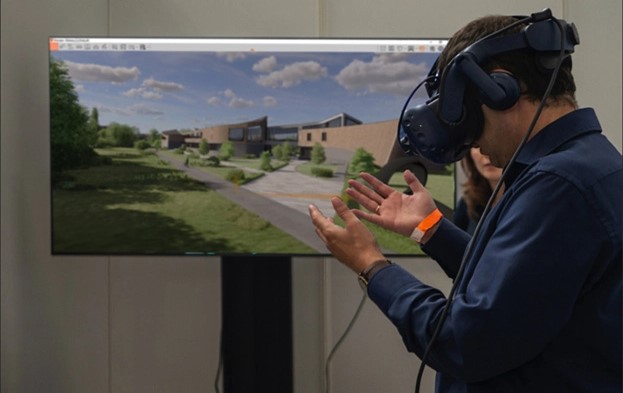
The interactive nature of VR fosters a sense of connection with the college community, making the exploration more meaningful and impactful. Students can participate in Q&A sessions, receive authentic testimonials, and even attend virtual events, mirroring the experience of an on-campus visit. This level of engagement enables students to make more informed decisions about their college choices.
Real-time interaction in VR not only overcomes geographical barriers but also creates a sense of presence and belonging, empowering students to envision themselves as part of the college community. As a result, virtual college tours become a powerful and beneficial tool for prospective students to make confident and well-informed decisions about their educational journey.
Also Read: The Power of Virtual Reality in Education Technology
8. Pandemic Adaptability
VR provides an essential alternative during times of crises when in-person visits are unsafe or unfeasible. As the world faced the challenges of the pandemic, virtual tours became a lifeline for students seeking to explore colleges without jeopardizing their health and safety.
Virtual college tours in VR not only offer a valuable solution during crises but also extend accessibility to a broader audience, transforming the college search experience into a convenient, inclusive, and pandemic-resilient process.
But what are the essential questions that you need to keep in mind when taking a virtual college tour?
Questions to Ask on a Virtual College Tour
When embarking on virtual college tours, it's crucial to keep some essential questions in mind and ask during the exploration process. These questions will help you gather valuable information and insights about each college, ensuring that you make an informed decision about your higher education journey.
Here are some key questions to consider:
1. What academic programs are offered?
Explore the college's website and virtual tour materials to learn about the range of academic programs available. You can look for specific majors, minors, and concentrations that align with your interests and career goals.
2. How is the campus culture?
Discover the college's values, traditions, and overall campus atmosphere. You should consider whether it fosters an environment where you see yourself thriving academically and socially.
3. What are the campus facilities like?
Pay attention to virtual tours that showcase academic buildings, libraries, laboratories, recreational centers, and student housing. Assess whether the facilities meet your expectations and needs.
4. How is the campus community?
Seek information about the student body size, diversity, and student-to-faculty ratio. Understanding the campus community can help you determine if you'll find a sense of belonging and support during your college years.
5. What resources are available for students?
Inquire about academic support services, career counseling, mental health resources, and extracurricular opportunities. A robust support system can contribute significantly to your success and well-being as a student.
6. What is the college's approach to learning?
Ask about the teaching methods, class sizes, and opportunities for research or internships. Understanding the learning environment can help you assess how well the college aligns with your preferred learning style. If they have an approach to experiential learning in college , it’s a plus point.
7. How is campus safety and security?
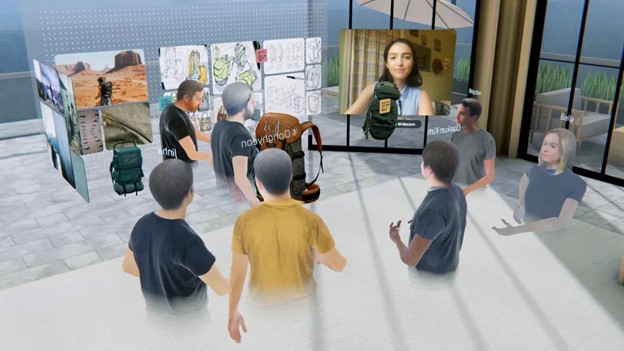
8. Can you connect with current students or alumni?
Many virtual tours offer opportunities to engage with current students or alumni through virtual events or Q&A sessions. Interacting with them can provide valuable insights into the college experience and campus life.
9. What financial aid and scholarship options are available?
Inquire about the college's financial aid packages, scholarship opportunities, and work-study programs. Understanding the cost and available financial support will impact your decision-making process.
10. What are the internship and job placement rates?
If available, inquire about the college's track record in helping students secure internships and job opportunities after graduation. Understanding the college's commitment to your future career can be essential.
Remember to keep an open mind and explore beyond the tour materials!
Engage with current students, ask questions, and seek out experiential learning opportunities. With careful research, active participation, and reflection, you can make the most of virtual college tours and find the perfect college that aligns with your goals and aspirations.
But, how to make the best of your Virtual College Tour? Let’s find out!
Also Read: Why Haptic Feedback is Crucial for VR Education?
How to make the most of your Virtual College Tour?
So, you're all set to take on the virtual college tour journey?
Awesome! Let's make sure you get the most out of this exciting adventure. Here are some nifty tips to guide you along the way:
Plan It Out: Before you dive into the virtual tours, whip up a little plan. Jot down the colleges you're itching to explore and the specific things you want to know more about. This nifty plan will keep you on track during your virtual college exploration.
Scribble Your Thoughts: As you hop from one virtual tour to another, don't forget to take notes!
Scribble down your first impressions, any questions popping into your head, and the coolest stuff that stands out about each college. These notes will be your best pals when it's decision-making time.
Join the Virtual Party: Colleges love throwing virtual events for future students, like webinars, Q&A sessions, and campus tours guided by real-life students or admissions officers. These events are gold mines for real-time answers and getting a taste of the college community vibe.
Chat Up Current Students and Alumni: If the virtual tour offers a chance to connect with current students or alumni, don't miss out! Talking to these seasoned college pros gives you the inside scoop that goes beyond official materials.
VR Classroom Adventure: Feeling adventurous?
Some virtual college tours offer VR classroom experiences ! You can virtually sit in on a lecture or join an educational activity. It's like teleporting into the college learning scene and checking if it matches your style.
Dive into Experiential Learning: Seek out the college's approach to experiential learning. Internships, research opportunities, and study abroad programs can be game-changers. Virtual tours often highlight these gems, giving you a glimpse of hands-on learning possibilities.
Share with Your Team: Don't be a lone ranger: Share your virtual college tour experiences and insights with your support network—your parents, teachers, or mentors. Their wisdom and advice can be total lifesavers when it comes to making that big college decision.
Go Beyond the Tour: Virtual tours are just one slice of the college exploration pie. Venture into the world of reviews, chat with college counselors, and get in on online forums where other future collegians are sharing their thoughts.

Get that Schedule going: Flexibility is key with VR campus tours. Create a schedule that lets you explore multiple colleges without losing your cool. Set aside specific times for each tour and stick to your plan like a champ.
To wrap it up, virtual college tours have opened up a whole new world for students like you to explore potential colleges. From campus facilities to real-time college life connections, these tours are full of valuable insights.
So, take that digital leap and embrace the endless opportunities in the world of virtual education.
Happy virtual touring!
The perfect college match is just a click away!
Frequently Asked Questions
Why college tours are important.
Virtual college tours present a unique opportunity for exploration, as they enable students to delve into many campuses from the comfort of their own homes.
How to make the most of your virtual college tour?
Plan it out, scribble your thoughts, join the virtual party, Chat up current students and alumni to make the most of your virtual college campus tour.
Recent Posts .

Revolutionizing Electromagnetic Education with VR Technology

Virtual reality for Robotics Engineering Education

Applications of VR in Telecommunication Engineering

5 Creative Ways to Teach Stepper Motor

Understanding Cardio-Respiratory Physiology through Virtual Models
Categories ..
- AI and Machine Learning
- Augmented Reality
- Engineering
- Online Assessment
- Teaching in VR
- Virtual Reality
Cybersickness in Virtual Learning: Enhancing VR Design for Student Well-being
Industrial metaverse: fostering collaboration and innovation in education.
- High School
- College Search
- College Admissions
- Financial Aid
- College Life
How to Make the Most of Virtual College Tours

Sometimes, you may not be able to visit the college you are considering to tour its campus. While many current college students tout the importance of being able to actually step foot onto the campus you might go to, sometimes the circumstances just do not work out.
However, colleges and universities have begun to offer great virtual tour alternatives, that while not exactly the same, can greatly subsidize a campus tour visit.
In fact, I never visited my campus in person until I was actually enrolled in it! So, here are the best ways to make the most of your virtual college tour.
Virtual Tour – 360 degree view
Many universities have invested in robust virtual tour software in the wake of COVID. Some larger universities will be equipped with a self-paced 360 virtual tour software, while smaller universities may have a YouTube video walking you through the campus.
Regardless of the technology being used, the virtual tour option will likely follow the same path that official campus tours would take. You should be able to “visit” all the key landmarks at your prospective university while your virtual tour guide tells you information.
If your university offers a 360 virtual tour, this also means that you will be able to “walk” around in the direction you please to explore on your own. While this is not the same as walking on the campus in person, the ability to explore to your heart’s content is a great feature that can be offered virtually. Use this to your advantage as this is an important aspect in making the most of your tour.
Because of the nature of a virtual tour, you will not be able to ask questions or likely see more major specific buildings. However, you can use the explore feature to look at your major buildings if possible, and you can get your questions answered in another way.
As you are taking your virtual tour, write down any questions you might have so you can ask them later.
One positive thing that people usually forget with virtual tours is that even if the weather is bad in real life, in the virtual tour, it is always going to be a warm, sunny day!
Beyond the broad tour of the campus, make sure you tour the prospective colleges you are interested in as well! While the overall tour is great to help you learn more general facts and information about the school, if you want to learn about information specific to your prospective major, many schools will also offer college specific tours.
Thus, if you are interested in business, make sure to do the general tour and the business school tour. Do not be afraid to tour several colleges!
Even if you think you are set on a major, it can still help to do a virtual tour of several different colleges because something in the tour may spark your interest.
Because it is virtual, it will not take any additional walking or days to do the tour, so a little extra time is likely going to be well worth it.
Zoom Information Sessions
Typically, paired with a virtual tour or otherwise offered concurrently, universities will offer information sessions over Zoom. Depending on the size of your university and the Zoom sessions offered, you may be put in a panelist setting or have the opportunity to connect with representatives one on one.
Regardless of the setting, you will get more information on the school, and this is where you should ask the questions you wrote down during your virtual tour.
If you have personal questions, this may be better asked during a one on one conversation, but if this is your only session, do not be deterred from asking your question!
I remember during my session, I asked a personal question pertaining to my unique circumstance but I asked it anonymously through the chat function. The host was able to answer my question and give me the exact information I needed.
If possible, I recommend collecting the emails or LinkedIn contacts of the people presenting in the Zoom session. While adults are likely going to be bombarded with questions and may be too busy to help you, current students may be more likely to answer your questions.
Connect with current students
Maybe you know a family friend that goes to the school you are considering. Or, as I mentioned, you obtained someone’s contact information through an info session.
Regardless, it is important for you to use your resources. It is the combination of these three tips – the virtual tour, Zoom info session, and connecting with current students – that will get you your most holistic outlook on the university you are considering.
Even if you do not have a family friend or are not able to connect with a current student during an information session, there are still ways to get in touch with a current student. One of the best avenues you can use is LinkedIn.
If you do not already have a LinkedIn, go ahead and make one . You can find current students and even filter by the major you are interested in. Many students will be open to chat and help you find out more information.
Simply reach out to them in a polite and professional manner and ask to set up a coffee chat. Here, you can ask direct and personal questions as well as their opinions on the school.
While an admissions officer or school representative will only talk about the school in a positive manner, prospective students are important to connect with because they will tell you about the good, the bad, and the ugly.
If you are struggling to think of some questions to ask them, here are some that you might want to consider. Of course, ask them about the questions that you wrote down during the virtual tour if you have not already.
Other things you might want to think about are questions about social life/Greek life or how helpful the advisors are. You may also consider asking about why they chose their major or what aspects of their college they wish they could change.
Take advantage of the fact that you are having a one on one conversation and make sure to learn from their experiences and advice. In this way, you will get a great outlook on the college or university from the administrator level as well as from a personal level.
Additional tips
Another important thing to look at is the dorm living situation. While a tour of the dorms may be included on the virtual tour, you may not be able to see what a model dorm room looks like.
In order to take a look, you will have to do some extra research. You can get an idea of the kind of amenities your dorm room will have as well as the general sizing of the dorm.
Like the virtual tour, if you go on to your school’s housing website, they will also likely have a 360 virtual tour of the inside of the dorm room. Even if they do not have the 360 virtual tour, they will likely have a robust set of pictures and a list of amenities.
One more tip to get the most information out of a virtual tour of your prospective university is to take yourself on your own virtual tour. Using the Google maps walking feature, you can explore the campus and may even be able to look inside certain buildings.
If you did not know about this feature, simply Google your potential university and drag and place the little orange person in the bottom right corner of the screen wherever you want to look.
In this way, you can “walk” around and get a good look at buildings that might not have been covered in the official virtual tour or have been blocked off by the software.
Another thing you might not have considered is if there are local branch campuses that are near you that you would be able to visit. For example, while Penn State ’s main campus is located in the middle of Pennsylvania, they have 20 branch campuses located throughout the state.
If you may not be able to visit the main campus, see if your school has branch campuses and tour one of those! While it is not the same as the main campus, university culture usually spans across locations and you will still be able to get a good gist of the culture.
Generating a view on a college culture without visiting the campus can be difficult but is one of the most important things you pick up on when you tour a campus in person.
In lieu of this, you can still get an idea of the college culture through social media. In order to see how students are, try finding “a day in the life of a student at XYZ university.”
While these types of videos are common on TikTok , you can also find more long-form videos on YouTube. You can get a much more personalized view of a student’s life and they are usually more unfiltered than any tour guide you may talk to.
These unsolicited, self-posted media videos about the school are probably some of the most authentic and realistic reviews of the school. Another important social media is of course the school’s official accounts such as their Instagram or even TikTok.
While this is an official view of the school, it can still provide insight to see what they choose to showcase about themselves.
Lastly, look at Reddit. Students at your school have likely made an un-official Reddit associated with the school in which they ask questions, debate, or complain about topics. Take a look through here and you will quickly see what people are struggling with, whether they are major classes, advisors, or the school system.
Beyond Reddit, you can also look at other unofficial affiliated school social media. Many schools have a Barstool account that shows what students are up to.
For a glimpse into the social lives of the students at your school, this is a helpful resource. However, keep all these unofficial resources in mind with a grain of salt, as these are someone else’s opinions, and only a small representation of what goes on at the school.
While a virtual tour cannot be the same as an in person tour, they can still be a great alternative to getting the information you need while staying in the comfort of your home.
Depending on how you do your research, you may actually learn more while “touring” virtually. Don’t be deterred by the fact that you cannot visit the campus in person.
As I mentioned, I never visited my college (Penn State) in person before I enrolled and I love it and am so happy I made the choice I did. Use your resources and make sure to ask lots of questions!
Author: Sophia
Sophia is a current college freshman at Pennsylvania State University with plans to major in marketing. When she's not studying or in the gym, you can find Sophia watching her favorite Youtube channels or streamers. In the future, she hopes to travel the world while developing her marketing skills and building her network.
More Articles By Niche
At Niche, we know a college is more than its stats or buildings. We also know it can be hard to figure out a college’s vibe or how students feel about it from its website alone. Using our comprehensive college profiles and social media accounts, you can get a sense of what life at a college is really like. Here are three simple ways to do that.
In case you haven’t heard yet, Niche has an amazing new opportunity for high school seniors. Niche Direct Admissions is a program that allows participating colleges to accept students and offer scholarships based on their Niche Profile. That’s right — no application needed.
Keeping a list of colleges you’re interested in (or a “college list”) is essential to the search and application process. There are so many options that it’s impossible to remember every little thing about every single school you may want to apply to. And while there are many ways you can keep a college list, it makes the most sense to use Niche.
How to Make the Most of Virtual College Tours
Virtual college tours can be a useful tool for weighing options or previewing a campus.
Virtual College Tour Options

Getty Images
Virtual reality is one way colleges offer students a glimpse of what to expect when they arrive on campus.
Virtual campus tours, which many schools implemented initially as a way to keep up with the technological times, proved a necessity once the COVID-19 pandemic disrupted the normal flow of the college-seeking process.
Now, college admissions and marketing professionals say virtual campus tours are a vital component of the college search. Using 360-degree video and virtual reality, colleges are able to welcome students to campus from hundreds or even thousands of miles away.
"I think virtual tours can be a great pre-screen or preview for students who have maybe never seen campus," says Kristi Lafree, director of enrollment marketing at Butler University in Indiana, which offers a 360-degree video tour alongside supplemental videos. "They maybe want to get a gut check. They want to make sure that if they do come visit that it will be worth it.”
Hundreds of U.S. colleges now provide prospective students with web-based virtual tours, complete with interactive photos and videos designed to be compatible across all devices. Some schools are even using virtual reality, though VR headsets are required for those experiences.
University officials say they hope virtual tours give students a sense of what college life at the school looks like, from the architecture to the activities. Students can dive into exploring buildings and parts of the campus that might not be covered as deeply on a standard in-person campus tour, says Joffery Gaymon, vice president for enrollment management at Auburn University in Alabama, which has a 360-degree virtual tour on its website as well as a video of a student-led tour.
Through a virtual tour, students can hop from the business building to the student union, or from athletic facilities to residence halls. A general in-person tour might not include a visit to the student newspaper building, but an aspiring journalism major may be able to tour it online.
Virtual tours have become a critical tool for attracting international students who might not be able to visit the campus in person, Gaymon says. Auburn has about 2,500 international students, visiting scholars and employees from 100 different countries each year, according to the school.
“It’s a way for them to dive a little deeper and to have a greater sense of familiarity with the university while they’re exploring options,” she says.
The University of California—Berkeley also offers 360-degree virtual tours for prospective students. Previously, the school was posting YouTube videos and virtual question-and-answer sessions, but it has since moved to a platform called YouVisit, which is used by about 700 schools across the country. Virtual tours proved to be a game changer for admissions, says La Dawn Duvall, executive director of visitor and parent services at Berkeley.
Students visiting Berkeley can start in the center of campus with a virtual tour guide providing information about the school while they explore at their own pace. In the last year, Duvall says more than 22,000 unique visitors have taken a general virtual tour of the school with about 3,000 more touring specific locations around campus that are available on YouVisit, including residence halls and academic buildings.
Auburn averages nearly 30,000 virtual visitors, including students living in India, China, Canada and Brazil, and about 25,000 in-person visitors per school year, Gaymon says.
These numbers suggest how important virtual tours have become for schools across the board, Duvall says. In a matter of minutes, students and families can visit a school in California, then zip to one on the East Coast, saving hours in the car or thousands in airfare and hotel bills, which may allow families to plan other visits .
Lafree says she expects these trends to continue, even as in-person visits resume.
“The demand for that virtual admission visit has really hardly decreased at all, so there’s no going back to pre-COVID for college admissions,” she says.
Well-produced virtual college tours also offer pizzazz that experts say prospective students may not see in other marketing materials. For schools that use VR, it provides an immersive experience; users have the sense that they're in that environment.
Prospective college athletes don’t have to visit an actual campus to get a good idea of what the school and its athletic facilities look like, says Zvi Goffer, a co-founder of CampusVR, the platform a number of universities and college athletic departments use for VR tours. This has been especially beneficial for schools and athletes as National Collegiate Athletic Conference transfers have become more prevalent, since it allows athletes to take an unofficial visit of a school without having to leave their living room, he says.
“This is going to become the norm,” Goffer says. “Visualization, as much as some people want to fight that trend, there’s just no substitute for it.”
But universities are also aware that prospective students are craving authenticity, even through virtual experiences and in social media, says Alexa Heinrich, social media manager for St. Petersburg College in Florida.
Lafree says high school students are cognizant that virtual tours and other school-produced content are intended to be marketing tools, so they're also looking at a school's TikTok, Instagram and YouTube pages to find first-person, user-generated content from other students.
Many students have begun to use social media apps the same way they might use a search engine, Heinrich says, and experts say visiting social media channels is a good way for students to make the most of vetting a school virtually. With this in mind, Heinrich says some schools have started to do “student takeovers” on their social media pages, where students show what a typical day is like on campus for an average student.
Potential students are craving something "that feels a little less robotic," she says.
“Social media plays a huge part in showing what student life and campus life is going to be like for them,” Heinrich says. “We can put out emails and tell you about the affordability of our college, but social media is going to do its best work when we’re showing students enjoying their experience at our college.”
Prospective students are applying to more schools, according to a March 2022 Common Application report , which showed the number of submitted applications rose by 21.3% between 2019-2020 and 2021-2022. (That includes data from 853 member schools.) With shortlists now longer than ever, students can use virtual tours to weigh options.
Campus officials advise prospective students to use the virtual tour as a jumping-off point and then to weigh academic programs, admissions requirements and other factors that will shape student experiences at the school. If students have interest in a specific program or activity, they should follow up directly with the school to gather more information.
“I would recommend taking their time and not just using just the tour, but using the larger campus website, the websites of your department or academic area of interest – supplementing those together,” Duvall says. “Take information from all of those places, because there’s not one that’s going to give you everything you need to represent the experience."
While college officials praise virtual tours as an option, they also encourage students to visit campus if possible. Gaymon says the function of a virtual college tour is to get a look at campus life. Other questions are best reserved for the admissions office.
“The virtual tour does not replace the traditional visit,” she says. “For us, it truly enhances it.”
Searching for a college? Get our complete rankings of Best Colleges.
14 Tips for an Effective College Visit

Tags: students , colleges , college admissions , education , college applications
2024 Best Colleges

Search for your perfect fit with the U.S. News rankings of colleges and universities.
College Admissions: Get a Step Ahead!
Sign up to receive the latest updates from U.S. News & World Report and our trusted partners and sponsors. By clicking submit, you are agreeing to our Terms and Conditions & Privacy Policy .
Ask an Alum: Making the Most Out of College
You May Also Like
How to decide if an mba is worth it.
Sarah Wood March 27, 2024

What to Wear to a Graduation
LaMont Jones, Jr. March 27, 2024

FAFSA Delays Alarm Families, Colleges
Sarah Wood March 25, 2024

Help Your Teen With the College Decision
Anayat Durrani March 25, 2024

Toward Semiconductor Gender Equity
Alexis McKittrick March 22, 2024

March Madness in the Classroom
Cole Claybourn March 21, 2024

20 Lower-Cost Online Private Colleges
Sarah Wood March 21, 2024

How to Choose a Microcredential
Sarah Wood March 20, 2024

Basic Components of an Online Course
Cole Claybourn March 19, 2024

Can You Double Minor in College?
Sarah Wood March 15, 2024

Recently viewed courses
Recently viewed.
Find Your Dream School
This site uses various technologies, as described in our Privacy Policy, for personalization, measuring website use/performance, and targeted advertising, which may include storing and sharing information about your site visit with third parties. By continuing to use this website you consent to our Privacy Policy and Terms of Use .
COVID-19 Update: To help students through this crisis, The Princeton Review will continue our "Enroll with Confidence" refund policies. For full details, please click here.
Enter your email to unlock an extra $25 off an SAT or ACT program!
By submitting my email address. i certify that i am 13 years of age or older, agree to recieve marketing email messages from the princeton review, and agree to terms of use., 60 questions to ask on your college tour.
Want to know what life’s really like at your dream school? Chat up the real experts on campus—the students.
When you tour colleges, make sure you talk with as many current students as you can. Ask them what they love and what bothers them most about their schools. This list of potential questions will help you spark some conversations with students on all your college visits , so you can find the school that fits you best.

Why did you choose this school?
Are you happy here?
What are your school's strengths?
What’s your #1 complaint about your school?
What else could stand to be improved?
How accessible are administrators, registrars, financial aid officers, etc.?
What majors are popular?
What departments or programs have the best reputations?
What’s your favorite class?
Are your professors good teachers?
Do your professors hold office hours, and will they meet with you outside of class?
Are most of your classes taught by professors or teaching assistants?
Were you able to take most of your first-choice classes?
Are your classes lecture-based or discussion-based?
How much reading and writing is required in your courses?
How often are collaborative work or group presentations required?
How satisfied are you with academic advising?
Do students use any on-campus tutoring programs or writing centers?
How big are your classes?
Does your major require an independent study or capstone project ?
Are professors available for research with students?
Is it popular to study abroad ?
Free SAT Practice Tests & Events
Evaluate and improve your SAT score.
Campus Life
What's it like to be a first-year student here?
What's a typical day like?
How much time do students spend studying per week?
What do you do when you're not in class?
What do you do on the weekends?
What is the social scene like?
What kinds of things are there to do in your school's hometown?
How’s the food ?
Do most students live on-campus?
How are the dorms ?
Which clubs and student organizations are popular?
Do lots of students belong to fraternities or sororities?
What's your favorite place on campus?
Where do you like to study?
What are the facilities like (science labs, libraries , theatres, gyms, etc.)?
Are there enough computer labs?
How is the WiFi on campus?
Is it easy to get around campus?
Are sports popular?
Is there a lot of school spirit?
Read More: Search for Colleges
Student Body
How would you describe your fellow students?
Are the students here friendly?
What makes the student body unique?
Is there diversity on campus?
Are there many students from other countries?
Do students of different races and classes interact easily?
Are students cliquish?
Career Services
Are internships available? How do you find them?
Is Career Services helpful?
Do you have a mentor?
Does your school have a co-op program ?
Are there opportunities to build leadership skills on campus?
What options exist for service learning in the community?
Do employers recruit students on campus?
How easy is it to find summer jobs and other kinds of work through your school?
Who are some of the notable graduates from your college?
How visible is your school's alumni association on campus?
What kinds of hands-on or practical experiences have you had in and outside of the classroom?
You can find academic information, campus life stats, and more—including quotes from real students—in our college profiles . Search for a school on your list, or check out our Best Colleges rankings.
Looking for strategic college advice?
Get one-on-one help from former Ivy League and top tier admission officers. Our College Admission Counselors will help you find, apply, and get accepted to your dream school.

Explore Colleges For You
Connect with our featured colleges to find schools that both match your interests and are looking for students like you.

Career Quiz
Take our short quiz to learn which is the right career for you.

Get Started on Athletic Scholarships & Recruiting!
Join athletes who were discovered, recruited & often received scholarships after connecting with NCSA's 42,000 strong network of coaches.

Best 389 Colleges
165,000 students rate everything from their professors to their campus social scene.
SAT Prep Courses
1400+ course, act prep courses, free sat practice test & events, 1-800-2review, free digital sat prep try our self-paced plus program - for free, get a 14 day trial, what would you score on the mcat today.
Thank you! Look for the MCAT Review Guide in your inbox.
I already know my score.
Enrollment Advisor
1-800-2REVIEW (800-273-8439) ext. 1
1-877-LEARN-30
Mon-Fri 9AM-10PM ET
Sat-Sun 9AM-8PM ET
Student Support
1-800-2REVIEW (800-273-8439) ext. 2
Mon-Fri 9AM-9PM ET
Sat-Sun 8:30AM-5PM ET
Partnerships
- Teach or Tutor for Us
College Readiness
International
Advertising
Affiliate/Other
- Enrollment Terms & Conditions
- Accessibility
- Cigna Medical Transparency in Coverage
Register Book
Local Offices: Mon-Fri 9AM-6PM
- SAT Subject Tests
Academic Subjects
- Social Studies
Find the Right College
- College Rankings
- College Advice
- Applying to College
- Financial Aid
School & District Partnerships
- Professional Development
- Advice Articles
- Private Tutoring
- Mobile Apps
- Local Offices
- International Offices
- Work for Us
- Affiliate Program
- Partner with Us
- Advertise with Us
- International Partnerships
- Our Guarantees
- Accessibility – Canada
Privacy Policy | CA Privacy Notice | Do Not Sell or Share My Personal Information | Your Opt-Out Rights | Terms of Use | Site Map
©2024 TPR Education IP Holdings, LLC. All Rights Reserved. The Princeton Review is not affiliated with Princeton University
TPR Education, LLC (doing business as “The Princeton Review”) is controlled by Primavera Holdings Limited, a firm owned by Chinese nationals with a principal place of business in Hong Kong, China.
Search & Additional Links
Additional links, meet bucknell.
- Plan a Visit
- Bucknell Stories
- Bucknell Magazine
- Bucknell Leadership
- Class Pages
- History & Traditions
Admissions & Aid
- Request Information
- Apply to Bucknell
- Tuition, Fees & Financial Aid
- Admissions Dates & Deadlines
- Virtual Welcome Center
- I've Been Admitted
- Find Your Counselor
- Office of Admissions
- Office of Financial Aid
- Admissions Blog & Podcast
- Majors & Minors
- College of Arts & Sciences
- College of Engineering
- Freeman College of Management
- Graduate Studies
- Undergraduate Research Opportunities
- Beyond the Classroom
- For Current Students
Life at Bucknell
- Housing & Dining
- First-year Experience
- Health, Wellness & Safety
- Diversity, Equity & Inclusion
- Free Expression
- Sustainability
- Arts & Performances
- Get Involved
- Commencement
Find Information For...
- Prospective Students
- Families of Prospective Students
- Current Students
- Current Parents & Families
- Prospective Employees
- Faculty & Staff
Find information for
@bucknellu social media accounts, meet our students social media accounts.
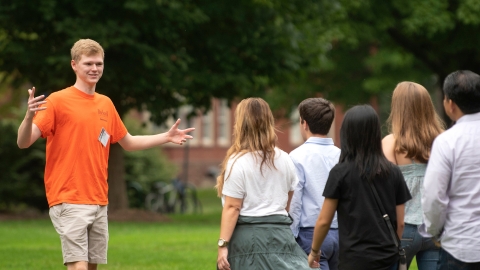
80 Questions to Ask on a College Campus Tour
November 4, 2020
by Matt Hughes
Choosing a college is about more than just numbers and data; it's about a feeling, and there's no better way to tell whether a college is the right or wrong place for you than by visiting in person .
When you're on campus for a tour, you'll get to see for yourself where you could be spending the next four years of your life: where you'll study, sleep, eat, play and kick back. You'll get a glimpse of the students you'll be surrounded by and the professors you'll learn from, the activities you'll pursue and the teams you'll cheer to victory, as well as the larger region you'll explore and make your home.
To make the most of your campus tour, you'll want to ask the right questions — ones that get to the heart of what you're looking for in a college experience. Choosing good questions is especially important now, as the pandemic has put limits on the time you may have to spend on a campus or the places you can visit while you're there.
Plan a visit to Bucknell
To help you make the most of your visit, we've compiled a list of questions to think about as you prepare, organized into five areas that together represent the whole of a college experience:
- Student and Residence Life
- Student Support
- Careers and Alumni Life
As you'll see, there are far too many questions on this list to ask in a one- or two-hour visit, especially if there are other families in your tour group. Instead of starting at the top, use this list to help refine your own shorter list of questions that get to the heart of what's most important to you.
And of course, feel free to add a few questions of your own to your list. Choosing a college is all about finding what you're looking for.
Before we begin, a few words of advice:
Do Your Homework First
A lot of campus visitors ask questions about data and numbers during their tour: How many students go here? How many graduate in four or six years? What's your student-faculty ratio? What's the average class size? These are all important things to know before making your decision, but they should also be easy to find on any college's website (you can find answers to all of them on Bucknell's Fast Facts page). You'll only have so much time to ask questions during a campus tour, so make the most of that opportunity to dig deeper by asking questions that get to the heart of what you're looking for in a college experience.
What About Financial Aid?
Questions about financial aid also fall into this category, but for a different reason: The answers you're looking for are highly individual. On any campus you'll find students who pay full tuition and those who pay no tuition at all; it all depends on their individual circumstances and the scholarships they receive. The student or admissions officer leading your tour won't know anything about your family's financial situation, so they can only explain so much. They might tell you about the college's average aid package or scholarship opportunities, but you can probably find that information yourself on the college's website.
While you should ask questions about financial aid, your best bet for getting the answers you need is to set up a separate call or meeting with the college's financial aid office (you can reach Bucknell's at [email protected] or 570-577-1331).
You can also use the net price calculator you can find on many college websites (Bucknell's is here ) to get a better sense of how much aid you might be eligible to receive.
During your tour, you may also want to ask about specific scholarships that might apply to you, such as merit scholarships for the arts, sciences or athletics. Just bear in mind that the tour guide can only give you general answers.
With that advice out of the way, here are some suggestions for questions to ask on your campus tour.
Academic Questions — What Are Classes Like?
- Why did you decide to attend this college?
Ask this question if your tour is being led by a student tour guide. There's no better way to get a sense of whether a college might be right for you than to hear first hand what sealed the decision for someone who goes there now. If there's any question we recommend you ask, it's this one.
- Is there anything you don't like? If you had to say, what would you change about this college?
Another revealing question that can give you perspective you won't find in admissions materials or online marketing.
- What makes this college different from other schools you looked at?
- What majors are most popular here?
- Are most classes led by professors or teaching assistants?
- Are classes mostly discussion-based or lecture-based?
- What's the largest class you've ever taken here?
- How large was your average first-year class?
- How much freedom do first-year students have in choosing courses?
- How easy/hard is it to enroll in a class you want to take?
- Are there any popular classes that always fill up quickly?
- How much room is there to take classes outside your major?
- Is it possible to take classes from another college (within a university) or get a minor or second major from another college?
- Is it easy to change your major?
- Is there an honors program? What does it require?
- Are there any capstone courses or senior-year projects all or most students take part in? What do you do?
- Are there any particularly interesting, innovative or unique classes you can talk about?
- How popular is studying abroad at this school?
- Does the school run any of its own study abroad programs? Where are they?
- Are there opportunities to do research or fieldwork as an undergraduate student?
- Are collaborative or group projects common?
- Do classes often connect to the community or with outside businesses and organizations?
Student Life Questions — What’s It Like to Live Here?
- What does an average day for a first-year student look like?
- How do first-year students tend to make friends and meet other students?
- What do students do when they aren't in class?
- Where do students go to study besides their rooms?
- What are weekends like on campus? Do most students stay here or do they tend to go home or off campus (or to a nearby city) to hang out?
- How are the connections with the local community? Do you feel like part of the community here?
- What makes this community special? Why do you like living here?
- Is there anything you don't like about this community/living here?
- Is housing guaranteed all four years? Do most students usually live on campus all four years or move off campus when they're allowed to?
- What are the housing options for students in each class year?
- Is there special-interest housing, like housing focused on a particular major or academic interest, students from particular backgrounds, or students who wish to pursue a substance-free lifestyle?
- How are first-year roommates assigned? Do most students get along with their assigned roommate? What was your roommate like?
- How easy or hard is it to change roommates if you're not a good match?
- Are there a lot of fraternities or sororities? How important are they to the social scene on campus?
- What are the fitness facilities like? Do they get crowded?
- What options are there for club and intramural sports or fitness classes?
- How's the food on campus? Are there a lot of options?
- Do the dining halls accommodate special dietary requirements?
- What local restaurants do students love?
- Is it easy to get around without a car?
- What transportation options does the college provide?
- Is the area safe to walk around at night? What kind of safety measures are in place?
- Do many students work on or off campus? Are there opportunities to find jobs that will help my resume?
- What are the big annual events on campus?
- What are the sporting events like here?
Support Questions — How Easy Is It to Get Help?
- How easy or hard is it to get help from professors outside of class?
- How often do professors have office hours? Is it easy to schedule a time to meet or do they fill up quickly?
- Is there free academic support or tutoring? Is it available to all students in all subjects?
- Is there a writing center to help with papers?
- How can the library help with research? Do librarians or other staff provide individual help?
- What resources and accommodations are available for students with learning disabilities or other special needs?
- What is academic advising like? Is it easy to meet with your adviser, and what kind of help do they offer?
- Do students organize study groups or online meetups? Does the school help coordinate those meetings?
- Are computer labs open 24 hours? Are they easy to access or do they get crowded at certain times?
- What health and mental wellness services are available on campus?
- What is orientation like? How long is it and do any onboarding activities continue throughout the year?
Admissions Questions — What Are You Looking for in a Student?
- What qualities and experiences are you most looking for in an applicant?
- How are applications evaluated? What are the different things you consider?
- Are interviews required or available as part of the application process?
- How large of a role do standardized test scores play in admissions?
- Are you test-optional?
- Does this school give credit for AP or IB courses, or college courses taken while in high school? How much/what classes are eligible?
- Do I need to declare a major on my application? What if I'm not sure?
- How easy is it to change my major if I decide it's not for me?
- What's your best advice for someone who wants to get into this school?
- What leads most students to choose this college?
- What sort of person wouldn't be happy here?
Career/Alumni Questions — What’s It Like to Be a Graduate of This School?
- What sort of help does the college provide for finding internships?
- Are there a lot of internships available in the community or do you have to go farther away?
- Are there any internship opportunities on campus?
- Are work-study programs available? What about co-op programs for majors like engineering or science?
- Is there special advising for students who want to go to medical school, law school or other graduate programs?
- What does career advising and counseling look like?
- Do many recruiters come to campus? How many of them are alumni?
- How does the career center help students identify job opportunities?
- Are career advising services available after graduation?
- What other help does the career services office provide?
- How many/what percentage of students find jobs in their field of study?
- How active is your alumni network? Is the alumni association visible on campus?
Touring Bucknell
So there you have it — enough questions to keep a campus tour guide talking all day. We hope this list gives you lots to think about as you begin exploring colleges in person.
If you'd like to visit Bucknell for a campus tour, get started by exploring your visit options here . You'll find a menu of visit experiences including traditional guided tours and self-guided alternatives. Just as we believe in empowering students to create their own college experience, we also give prospective students choices to experience our campus the way that suits them best.
You can also get a taste of what you'll experience on campus through our virtual tour .
And if you have questions you'd like to ask us now, please contact us anytime at [email protected] or 570-577-3000.
Stay up to date throughout your Bucknell journey
Related stories, the beginner’s guide to college financial aid.
Admissions Blog

What to Do After Receiving a College Acceptance Letter
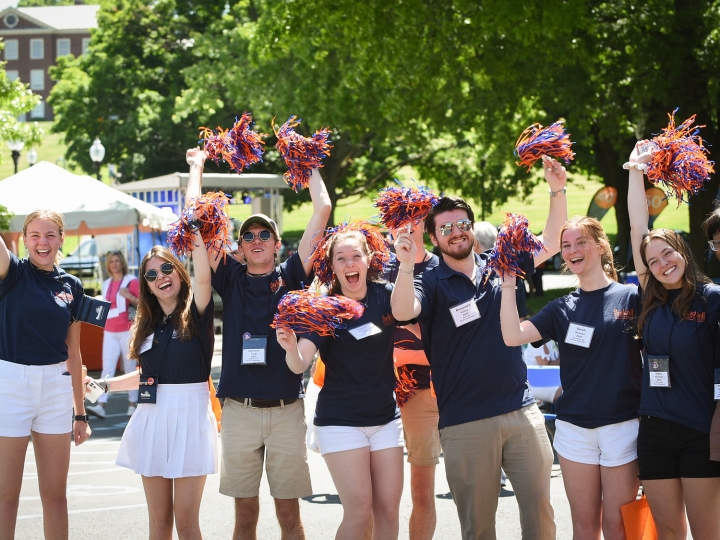
Want to learn more about Bucknell?

College Visits Essentials: Making the Most of Your Campus Tours
College Visits Essentials
Embarking on college visits and campus tours marks a significant milestone in the college search process. These experiences offer invaluable opportunities for prospective students to explore potential colleges firsthand, gaining insights into campus life, academics, and extracurricular opportunities. As you begin compiling your college list and narrowing down your choices, college visits can help you make informed decisions about your future.
In this article, we’ll delve into the essentials of college visits, offering practical college visit tips and a college visits checklist for maximizing your experience . We will cover everything from uncovering the questions you should ask during a college tour to understanding how to schedule and plan college visits effectively. And, we’ll look at things you may not have thought about, including having virtual college visits, conducting a self-guided tour, and navigating college campus tours safely and effectively.
We promise this article provides everything you need to know regarding the college visit process. Whether you’re just beginning your college search or fine-tuning your college list, these insights will help you navigate the complexities of the college visit process with confidence.
Let’s get started!
Are College Visits Important?

When making one of the most significant decisions of your academic career, the role of college visits in the college search process cannot be overstated. College campus tours are a crucial part of the decision-making process, offering firsthand insights that can influence your college search.
First and foremost, college visits allow you to immerse yourself in the campus environment and explore academic facilities, dormitories, and recreational amenities. Whether you’re passionate about conducting research in state-of-the-art laboratories or participating in vibrant student organizations, visiting a college in person lets you assess whether it offers the resources and opportunities you seek.
Moreover, college visits offer the chance to interact with current students, faculty members, and admissions staff, providing invaluable perspectives on academics, extracurricular activities, and campus life. These personal connections offer unique insights you simply can’t gain from a website or brochure.
Ultimately, the information and impressions gathered during college visits can significantly impact your college choice. By experiencing campuses firsthand, you can effectively consolidate your college list and compare your top colleges by understanding which colleges resonate with you. Before you make your final decision , you can use the information collected on the campus tours to demonstrate your interest in the college or university, increasing your chances of acceptance.
What Should I Ask On A College Tour?
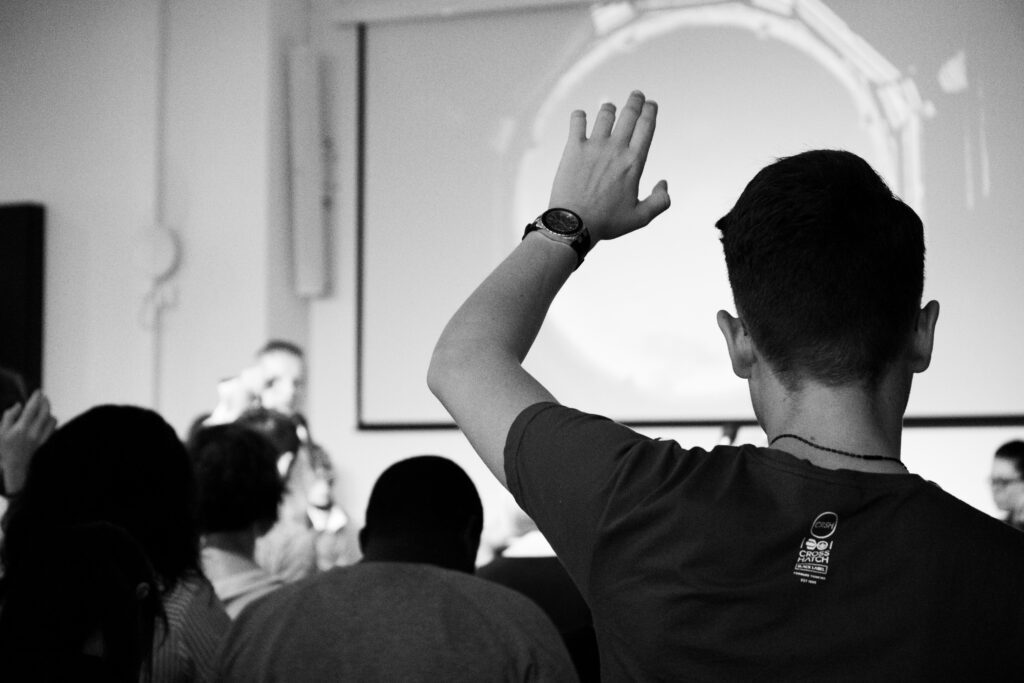
While college visits and campus tours provide invaluable firsthand experiences , it’s essential to do your homework before stepping foot on any campus. Here’s one of our “pre” college visit tips–conduct thorough research beforehand to help you make the most of your visit. By asking the right questions , you can gather the information you need to make an informed decision about your college choice.
Questions about academics
One crucial aspect of pre-tour research is identifying academic programs and resources that interest you. Take the time to explore the college’s website and familiarize yourself with the range of majors, minors, and academic opportunities available. Here are a couple of questions you may want to ask:
- Can you provide more information about the [specific major/program]?
- Are there opportunities for undergraduate research or internships in [area of interest]?
Questions about campus life
In addition to academic offerings, consider campus life and student services that you would like to know more about. Research the college’s extracurricular activities, student organizations, and campus events to understand the social and cultural opportunities available. Here are other questions you may want to ask:
- What types of student organizations are active on campus?
- Are there opportunities for community service or volunteer work?
More college visit questions
Furthermore, consider other aspects of the school that might not be immediately obvious. Research housing options for juniors, including on-campus dormitories, off-campus apartments, and housing policies for upperclassmen. Also, consider things like parking availability and policies regarding cars on campus. Consider asking questions such as:
- What are the housing options for upperclassmen, and how is housing assigned?
- Is parking available on campus for students, and are there any restrictions on bringing cars?
Conducting thorough research, and making your college visits checklist, is essential for making the most of any college visit.
How Many College Visits Should I Do?
When determining how many college visits you should do, you’ll need to strike a balance between quantity, quality, and expense. While visiting as many colleges as possible may seem ideal, college visits can get pricey. Therefore, it’s crucial to personalize your college visit plan to ensure that you make the most of your time, energy, and financial resources.
Here are some steps you can take to help prioritize your college visits and ensure you are completing the right number of college campus tours:
Four Steps to Planning College Visits
1. start with a broad college list.
Have a wide range of colleges that interest you, encompassing various types of campuses such as big versus small, urban versus rural, and public versus private institutions. Consider including HBCU college tours or schedule one or two Harvard tours. Having a broad college list lets you gain insights into the diverse campus environments and refine your preferences accordingly.

2. Prioritize your top choices
Once you’ve identified your top 3-5 colleges on your college list, prioritize visiting these campuses. Consider planning multiple trips in various capacities if you’re highly interested in a particular school. For example, you can schedule an online UCLA campus tour. Then, schedule an in-person prospective student UCLA campus tour. You can even conduct a self-guided tour versus an official UCLA campus tour to have more flexibility in where you’ll get to go on campus.
3. Balance depth with practicality
While visiting as many colleges as possible can be beneficial, consider the practicalities of your college visits checklist. Virtual college tours and information sessions can be valuable alternatives for colleges that are harder to visit in person. For instance, Harvard tours can be in-person or virtual. Therefore, if Harvard is on your list, plan your Harvard tours accordingly based on your availability and resources.
4. Consider special programs
If you’re invited to special programs for admitted students or specific academic departments, prioritize these college visits. Special programs through HBCU college tours or college visits for juniors often offer opportunities to interact with faculty, current students, and other admitted students, giving you a firsthand glimpse into life on campus.
Next, let’s discuss how to plan and schedule a college visit.
How To Schedule College Visits
Planning your college visits involves careful coordination and scheduling to ensure you make the most of your time on campus. From considering academic calendars to contacting college admissions offices, here are some college visit tips regarding scheduling your campus tours effectively.
Here are two of the most important things to keep in mind when working on the logistics of your campus visits.
How to Work on Logistics of Campus Visits

Consider Academic Calendars
Plan your college visits around academic calendars. Before scheduling your college visits, consider the academic calendars of the colleges you plan to visit. Check their websites to determine the dates of important events, such as orientation sessions, midterm exams, and holidays. This is important whether you are planning college visits for juniors, HBCU college tours, or any other kind of college visit.
Contact Admissions Offices
Contact college admissions for tour scheduling. Once you’ve identified potential college visit dates, it’s time to contact the admissions offices or go to the admissions website to schedule your campus tours. Most colleges offer guided campus tours led by student ambassadors or admissions staff. Additionally, many schools host information sessions that provide an overview of the college’s programs, resources, and admissions process.
Scheduling college visits: step-by-step
Let’s take a look at a hypothetical example to better understand the steps it takes to schedule a campus tour. Imagine you’re a high school student living in Chicago. You have already completed a University of Chicago tour, and now, you’re interested in scheduling a tour of the University of Southern California (USC) in Los Angeles. As an in-state college, accessing the University of Chicago tour may have been simple. But let’s look at how you can navigate the scheduling process of an out-of-state college tour:
Navigating an Out-of-State College Tour
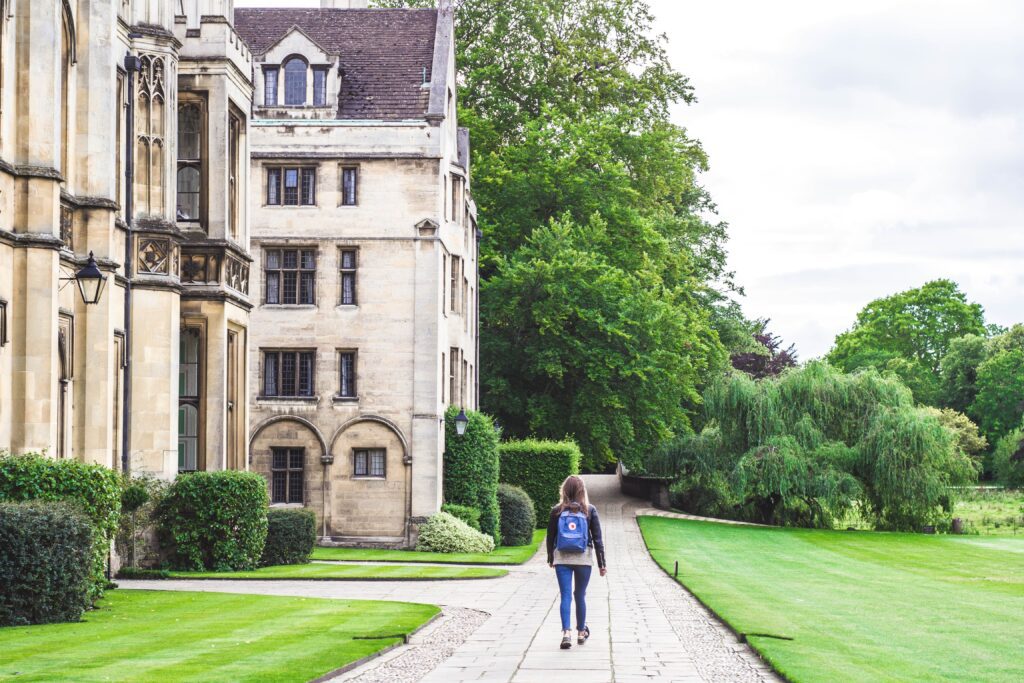
- Research USC’s academic calendar to identify optimal visit dates that align with your availability.
- Visit USC’s admissions website to find information about campus tours and information sessions. Determine whether USC offers guided tours, self-guided tours, or virtual college visits for prospective students unable to visit in person.
- Use the USC campus tours website to schedule your campus tour. In addition to scheduling an admissions tour and presentation, consider scheduling an academic department presentation.
- Upon confirmation of your campus tour reservation from USC’s admissions office, make travel arrangements from Chicago to Los Angeles. This includes booking flights, accommodations, and transportation to and from the USC campus.
- Plan your itinerary for your visit to USC. Consider attending guided campus tours, participating in information sessions, exploring campus facilities, and engaging with current students and faculty members.
- During your visit, bring your college visits checklist. Take notes, ask questions, and gather information to help you decide whether USC is the right fit for you.
Since the cost of college visits is a big factor to take into consideration during the planning process, let’s discuss it further.
Are College Visits Free?

As you begin to make your college visit list, you’ll need to understand the costs associated with college visits. While some campus tours may be free, others require careful budgeting and planning to manage expenses.
College visits can incur various expenses, including transportation, accommodation, meals, and miscellaneous fees. While some colleges offer free guided campus tours and information sessions, others may charge a nominal fee for certain services or events.
Tips for managing the cost of college visits
To manage the costs associated with college tours effectively, consider the following college visit tips for budgeting and finding free visit opportunities:
Start planning your campus tours well in advance to take advantage of early booking discounts and special promotions. Research travel options, accommodations, and local amenities to identify cost-saving opportunities and plan your itinerary accordingly.
Utilize virtual college tours
Besides visiting colleges in person, explore virtual college tours offered by colleges and universities. Many institutions, such as Boston College and Harvard University , provide virtual college visits and information sessions that allow you to explore campus facilities, interact with admissions staff, and learn about academic programs from the comfort of your home at no cost.
Explore fly-in programs
Several colleges and universities offer fly-in programs. These programs typically cover travel expenses, accommodations, meals, and participation in campus activities, allowing students to experience campus life firsthand without incurring any costs.
Speaking of fly-in programs, let’s learn a little more about them.
Fly-in programs
Here are three great fly-in programs/opportunities for low-income students.
1. QuestBridge College Prep Scholars Program
College visits for juniors are incredibly important. QuestBridge offers a College Prep Scholars Program for high-achieving, low-income high school juniors which, you guessed it, sponsors college visits for juniors. This program provides participants access to college admissions resources, mentorship opportunities, and fly-in college visits for juniors to top colleges and universities across the United States. Beyond giving fly-in college visits for juniors, QuestBridge takes it a step further and will help fund your attendance to top summer programs at some of the most prestigious colleges in the country.
2. Tulane University, PreviewTU Program
PreviewTU is a campus visit program at Tulane University that typically occurs in the fall. While open to all, students who identify as first-generation college attendees, LGBTQIA+, are from low-income backgrounds or rural/small-town residents, and/or students of color are particularly encouraged to attend. The program is offered both virtually and in person. PTU activities include campus tours, student panels, admissions and financial aid sessions, lunch with Diversity Fellows, and opportunities to connect with professors and support partners. Financially disadvantaged students may qualify for partial travel reimbursement stipends of up to $500 for themselves and one guest.
3. Massachusetts Institute of Technology, Weekend Immersion in Science and Engineering (WISE)
MIT’s Weekend Immersion in Science and Engineering (WISE) is a three-day program for rising seniors to explore MIT life. It’s fully funded, covering transportation to and from MIT. Applicants from underrepresented backgrounds, including Black, Latinx, and Native American students, those from lower socioeconomic statuses, and first-generation students, are strongly encouraged to apply. WISE typically occurs in September. Participants reside on campus with MIT undergraduates, engaging in academic and campus life activities. They meet peers and faculty and attend college admissions and financial aid workshops. Applications are due in August, and the program generally takes place in October.
At this point, we’ve covered college visit tips for preparing for your visit. Now, let’s discuss what to do when you’ve finally made it to campus!
Things To Do On A College Visit
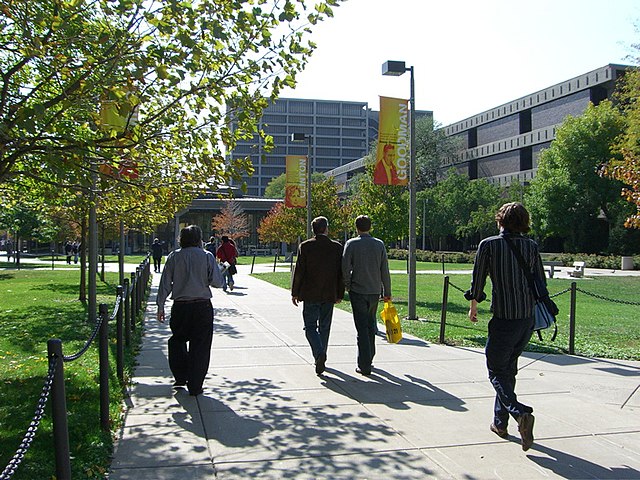
As shared earlier, college visits offer students a chance to get a feel for the college campus and community. Therefore, while on a college visit, it’s important to take advantage of all the things to do on campus and within the surrounding community or area. Here are 3 things to do on your college tours and college visits:
3 Things To Do on College Visits
1. attend information sessions and campus tours.
This may seem obvious but don’t bail on the planned tours and sessions. They’ll give you valuable information about the school and campus. These parts of the college visit are just as important as exploring on your own. Don’t forget to bring your list of questions and ask about anything that isn’t answered!
2. Inquire about attending classes or talking to current students
Besides attending information sessions and campus tours, ask about the possibility of attending classes or speaking with current students during your visit. Observing a class in your area of interest can provide valuable insights into the college’s academic rigor and teaching style. Similarly, chatting with current students can offer firsthand perspectives on the overall student experience.
3. Explore the campus
Don’t be shy when you’re visiting a college’s campus. Wander around and imagine yourself living or studying there. Check out all the different areas of campus. Basically, get a feel for the vibe of the school–trust your intuition and see if it feels like a fit.
Don’t forget to consider the area outside of campus. Evaluating the surrounding community of a college campus can provide valuable insights into the overall quality of life and opportunities available to students during their college experience. Think about the amenities and resources that are important to you. Consider adding these questions to your college visits checklist. Are there nearby music venues, art galleries, or cultural attractions that align with your interests? What transportation options are available, including airports or public transit systems? No detail is too small to ask about on your visit to campus.
When Should You Start Visiting Colleges?
Navigating the college search process is undoubtedly complex. Next, we will cover some tips on when to set up your first college visit. There isn’t a hard and fast rule to this question, but there are certainly some best practices when it comes to planning college visits.
It is never too early to begin visiting colleges. College admissions offices receive tour requests from students as young as 6 th grade. If you plan to visit a college any time before your 9th-grade year, it is important to remember that you may need to tour the college again before applying and certainly before enrolling.
Going on a college visit as a younger student can begin planting the seeds for what college is like. But very rarely will a college visit before high school provide you with meaningful admissions information that you will be able to retain and act on when it is time to submit your application.
College visits for juniors and seniors
As you get closer to your junior and senior year of high school, college visits become more than just an opportunity to understand college more broadly. College visits for juniors and seniors can help students discover their preferences. At this stage of the college search process, students can begin to discern the type of college campus they might see themselves ultimately enrolling at.
Whether you are on a UCLA campus tour in California, a University of Chicago tour in Illinois, or a Harvard tour in Massachusetts , you can begin to explore your regional preferences. Additionally, experiences on HBCU college tours can give you some insight into distinct institutional types. Note how you felt about your HBCU college tours at institutions like Spelman College or Howard University compared to other universities. College visits do more than show you what colleges you might like, they also expose you to colleges that might not be a good fit.
Managing the logistics of college visits
Campus visits are often hard to arrange because of the time and resources they require. If you are planning to go on multiple college campus tours, you may find a strain on time and resources. A student who lives in Florida may find that attending a UCLA campus tour is much harder to plan than attending a campus tour at the University of Florida. Because of this, many families begin planning their campus visits far in advance. There are also opportunities to visit campus at the last minute. However, these trips typically align with other travel or are at campuses close to the student’s home.
In addition to prospective student visits, you may have the opportunity to visit campus as an admitted student. Admitted student college visits often include a more immersive experience than a college campus tour for a prospective student. Even if you have already visited campus, admitted student visits will often equip you with all the information necessary to make your final college decision .
College Visits During Coronavirus

The coronavirus pandemic resulted in additional access to college admissions information. During the pandemic, colleges and universities added an increased number of virtual college tours, online information sessions, and other virtual opportunities to learn more about colleges in the absence of in-person college campus tours. Virtual college tours allow students to access information at any time and refer to these virtual college tours when questions arise.
The pandemic also resulted in additional safety measures for college campus tours. At the height of the coronavirus pandemic, college campus tours were completely halted. As campus tours resumed, colleges adopted mask mandates, reduced tour capacity, and made changes to tour stops. The largest safety measure during the coronavirus pandemic was COVID-19 testing prior to attending college campus tours.
While many of these safety precautions are a thing of the past, it is important to understand the heightened awareness around health that is still present on college campuses. Before you visit a college campus, it can be helpful to review their policies to confirm that there are no additional requirements for their campus tours. And, don’t be afraid to take personal precautions to take care of yourself, like wearing a mask on your visits.
What Colleges Are Open For Tours?
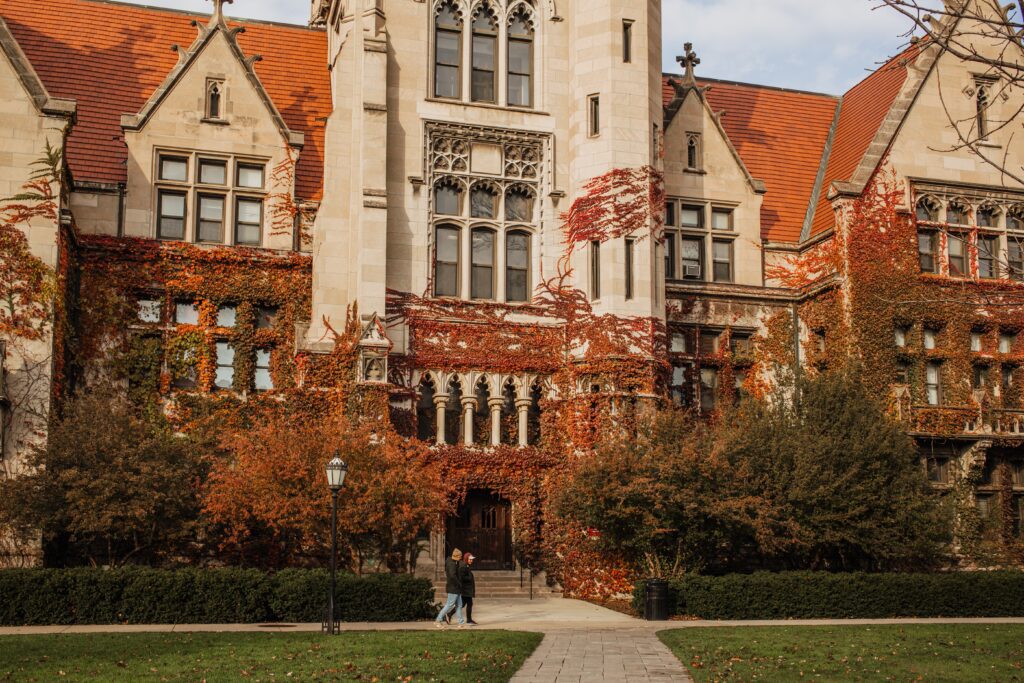
Thousands of colleges and universities across the country offer college tours . Most colleges offer campus tours throughout the academic year and in the summer. To learn more about the campus tour availability on a specific campus, you should visit the admissions or welcome center website. Some colleges also provide the opportunity for a self-guided tour which allows families to visit campus outside of the scheduled tour times.
Virtual college visits
If you are unable to arrange an in-person college visit, don’t fret. There are several ways to experience a college without stepping foot on campus. Virtual college tours and virtual college visits allow students to experience a campus from the comfort of their homes. For example, if you are unable to attend the UCLA campus tour or the University of Chicago tour, you can sign up for one of their virtual college visits or virtual college tours.
In addition to virtual college tours and virtual college visits, social media has also offered opportunities for prospective students to explore a college campus from their cell phones. Following institutions on your college list on Instagram or TikTok can often provide a current student’s vantage point of their campus. Social media is one of the best ways to get to know a college virtually!
What Happens During A College Visit?
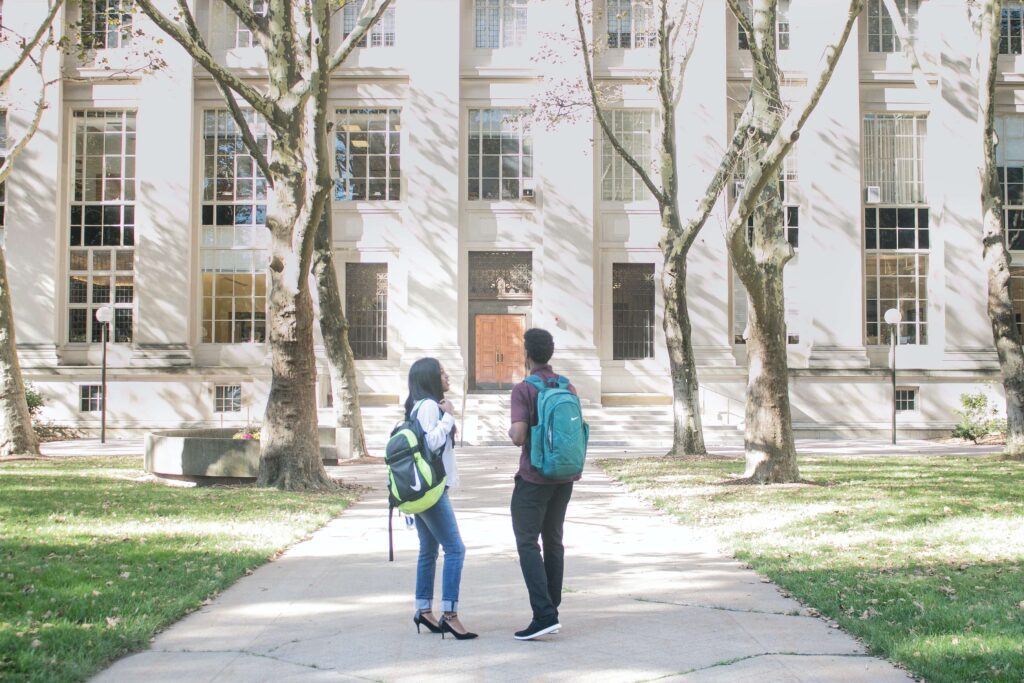
College visits come in all shapes and sizes. Most college visits include some type of campus tour. Campus tours can be led by a student ambassador or experienced as a self-guided tour. The first stop on college campus tours is typically the Office of Admissions or the Welcome Center. This introduction to campus usually provides basic information on the college and orients the guests with the rest of the tour.
Academics
College campus tours introduce students to the academic buildings, student life opportunities, and residence life offered on the campus. Academic buildings on campus tours can include the school library, tutoring center, or architecture building. Understanding where your major classes are located can give you insight into the classroom and lab spaces available to students in your major.
College campus tours can also be enhanced by exploring additional personalized experiences. Some colleges will offer a general admissions information session as part of the campus tour. Other institutions might offer academic information sessions for students interested in majors like engineering, computer science, or business.
Student/residence life
Student life opportunities can be found throughout the campus tour and are an important deciding factor in the college search process. College visits highlight the student organizations available for you to join. You may also find your tour guide pointing out popular hangout spots around campus. Student guides on Harvard tours might point out the Stone Hall Basement or Squash courts in the athletic complex. Student life opportunities also include campus events and traditions. Student guides on HBCU tours might talk about their epic homecoming celebrations.
Residence life also tops the list of the most popular campus tour stops. Residence life information includes touring a dorm and seeing the cafeteria. Facilities such as the campus gym and study spaces might also be included in the residence life portion of the tour.
What To Wear To A College Visit?
When you schedule your first college visit, it is unlikely that your email confirmation will include a dress code. The type of clothing you choose to wear may vary based on the type of college visit you are going on. As a rule of thumb, you should wear clothing that you feel confident in–and that you’d feel comfortable meeting admissions officers in. Considering the weather and walking requirements will also provide insight on what to wear.
Beyond what to wear, let’s discuss what additional items should be included on your college visits checklist.
What To Bring On A College Visit?

College visits can often be long days in cities you are unfamiliar with. So, it is critical to think about the items you might need during the day. Check out this college visits checklist:
College Visits Checklist
- Notepad and pen
- Umbrella or poncho for inclement weather
- Phone to take pictures and videos
- Money to visit the school bookstore
All the items on the college visits checklist may not be necessary for every college visit. You should use your best judgment to discover if these items would be useful for the campus you are visiting.
College campus tours can be impacted by several variables. Campus visits are subject to weather, campus emergencies, holidays, and many other contingencies. Your college visits checklist may shift depending on any of the events above. Check out this resource as you are compiling your checklist.
5 Tips for Maximizing Your College Visits

Throughout this guide, we’ve discussed the importance of college visits, when to begin planning college visits, and what to include on your college visits checklist. Before we wrap up, let’s discuss five college visit tips for maximizing your time.
5 Tips for College Visits
1. do your research.
Studying a college ahead of time allows you to better understand its programs, campus culture, and the opportunities it offers. Identify specific areas of interest, such as academic departments, extracurricular activities, or campus facilities you want to explore. Having a basic knowledge of the campus and how it aligns with your interests will allow you to focus on the more nuanced questions and observations once you arrive for your campus tour.
2. Engage with the Campus Community
Talking to campus community members apart from your tour guide is one of the best ways to have an authentic experience during college visits. Campus community members include current students, faculty, and staff. Conversations with people who are on campus every day will give you firsthand insights into the college experience there. And, you don’t have to worry about whether someone is just telling you something because it is their job to do so (tour guides are great, but they are extensively trained to share specific information). Ask questions about academic programs, student life, support services, and anything else that will help you gauge if the campus is the right fit for you.
3. Attend Information Sessions and Campus Tours
Some students might think that arranging an unofficial tour will be more beneficial and honest. While you may receive some inside information that an official tour won’t provide, you will also miss out on some critical information. Always register for the official campus tours and information sessions to gain structured insights about the college. These sessions often provide valuable information not available on the website or in brochures. Meeting a current student or family friend for lunch or taking a self-guided tour after an official information session can give you the additional freedom you are seeking out on your college visits.
4. Explore Beyond the Tour
After your official tour, it is highly recommended to explore campus on your college visits. Spend time wandering around the campus to get a feel for the environment and the student body. It is of growing importance to students that they like the town or city that their college is in. Visit the surrounding area of the campus to see what amenities and off-campus activities are available to students. If you are unfamiliar with the city, you might benefit from visiting some tourist attractions like museums, parks, or special events. Another great way to explore the environment around campus is going out for a simple lunch or dinner to get a better feel for the culture beyond the college campus.
5. Document Your Visit
After going on several college visits, they may begin to all run together. Be sure to take notes and photos during your visit to help you remember what you liked and disliked about each campus. This is especially important for college visits for juniors and sophomores, as these students may have more time between their college visits and submitting the admissions application. Once your tour is over, reflect on each of your visits to compare the different colleges. You will need this perspective once you begin receiving admissions offers and are facing a finite time to make such an important life decision. After all, one or two details may be the difference between a college making your college list.
College Visits – Takeaways

College visits are an essential part of the college search process and creating a college list. Thankfully, planning an informative college visit is not as complicated as you might think.
Successful college campus tours begin with doing your research early. This research might include location, academic offerings, and student life opportunities. Whether you are attending HBCU college tours, Harvard tours, or Boston College tours, feel free to look back at our college visit tips.
During your college visits, do not forget to register for an official tour , engage with the campus community, and explore the environment beyond the campus tour. Your college campus tours will be beneficial far after the visit has ended. Read through your notes and look through pictures of the campus when it’s time to fill out your college applications. We hope by the end of this guide, you feel prepared to plan and go on your college visits. For more resources, check out this college visit webinar on making the most of your visit and how college visits show demonstrated interest . And, after all those college visit tips, here’s one more for the road–have fun!

This article was written by senior advisor, Ashley Hollins and Chelsea Holley. Looking for more admissions support? Click here to schedule a free meeting with one of our Admissions Specialists. During your meeting, our team will discuss your profile and help you find targeted ways to increase your admissions odds at top schools. We’ll also answer any questions and discuss how CollegeAdvisor.com can support you in the college application process.
Personalized and effective college advising for high school students.
- Advisor Application
- Popular Colleges
- Privacy Policy and Cookie Notice
- Student Login
- California Privacy Notice
- Terms and Conditions
- Your Privacy Choices
By using the College Advisor site and/or working with College Advisor, you agree to our updated Terms and Conditions and Privacy Policy , including an arbitration clause that covers any disputes relating to our policies and your use of our products and services.
What are some good questions to ask at a virtual college tour? What are some questions I definitely shouldn't ask? Answered
I have a virtual college tour scheduled with a small liberal arts college next week. I am kinda clueless as to what questions to ask them during/after the tour. This tour isn't considered as part of the application so my chances won't be hurt/improve due to this tour.
I was just wondering what questions might give me an insight into the college in general.
Earn karma by helping others:
I love this question! As a former tour guide, I can confidently say that no matter what you ask, it won't be the silliest question they've heard, so don't worry about feeling embarrassed -- genuinely ask the questions you're interested in. In general, you want to ask questions that will help you get insight into what it's like to attend the school in question as well as any specific questions you're wondering about. In addition to the awesome answers already posted here, some good ones to help with this are:
- Favorite/least favorite things about the school
- Where do you feel you've made your closest friends at [X school]?
- How often do students use [X resource]?
- If you could do your college experience over again, what would you do differently?
- What surprised you about [X school] when you first got here/what's something you think most people don't realize about [X school]?
- Do most people live on- or off-campus? Why do you think that is?
- Do you like [X resource/department/program]?
You'll want to avoid asking questions that are easily searchable on the school's website (e.g. if the school has study abroad programs), but you can feel free to ask more personal questions about those searchable things (e.g. do people really take advantage of study abroad/do you know anyone who has done study abroad/is it feasible to do study abroad as an engineering major/etc.). You should also avoid asking about what it takes to get in (e.g. what were your SAT score and GPA in high school/what should I write my essays about?), though asking questions that will help you in the admissions process in general (e.g. what do you think is something all students at [X school] have in common?, which may help you write a 'Why [X school]' essay later on) is fair game. Keep in mind that your tour guide likely has nothing to do with the actual admissions process, so the best they can do is speak from personal experience; they don't have any special insight into what goes on in the admissions office! They are experts on being students at their school, though, so you can ask anything related to student experience; if they don't have firsthand experience with the things you're asking about, chances are they know someone who does and can connect you with them.
As a side note, tour guides love getting thank you notes/emails after tours. Of course, this will not impact your admissions chances AT ALL since they are not involved, but if you think they gave a great tour, let them (or their boss) know! Plus, you can usually reach out to your tour guides if you have additional questions (though schools have varying policies on giving out students' contact information).
Have fun at your virtual tour!
Some more questions you may want to ask!
- Is there a culture of stress on campus? What resources are there to deal with workload and stress?
- What classes did you take in the fall of your freshman year?
- What is your favorite thing about the academics at X University?
- What's your favorite tradition at X University?
- What was your favorite class and why?
- As an X major, how many of your classes are labs vs. lectures vs. precepts?
I think you could ask a variety of questions, about academics, campus life, the student body, career options, and lifestyle, apart from the basic questions.
Some examples:
Does your major require a capstone project?
Are research opportunities available for students?
Is it popular to study abroad?
CAMPUS LIFE:
What are the facilities like?
Is it easy to get around campus?
What's a typical day like?
STUDENT BODY:
Is there diversity on campus?
Are there students from other countries?
CAREER OPTIONS:
Are internships available? How do you find them?
Is Career Services helpful?
Can you get a mentor?
What is life like around the campus?
What are the other housing options?
These questions might give you some idea, of what to ask. You could be specific about a particular class or maybe a sport? Or the food options. You could also ask about the safety aspects in and around the campus.
Hope this helps, and all the best (:
Calculate for all schools
Your chance of acceptance, your chancing factors, extracurriculars, community guidelines.
To keep this community safe and supportive:
- Be kind and respectful!
- Keep posts relevant to college admissions and high school.
- Don’t ask “chance-me” questions. Use CollegeVine’s chancing instead!
How karma works
Important Addresses

Harvard College
University Hall Cambridge, MA 02138
Harvard College Admissions Office and Griffin Financial Aid Office
86 Brattle Street Cambridge, MA 02138
Social Links
If you are located in the European Union, Iceland, Liechtenstein or Norway (the “European Economic Area”), please click here for additional information about ways that certain Harvard University Schools, Centers, units and controlled entities, including this one, may collect, use, and share information about you.
- Application Tips
- Navigating Campus
- Preparing for College
- How to Complete the FAFSA
- What to Expect After You Apply
- View All Guides
- Parents & Families
- School Counselors
- Información en Español
- Undergraduate Viewbook
- View All Resources
Search and Useful Links
Search the site, search suggestions, virtual tour, explore harvard from home.
Use our Virtual Tour to discover spaces that aren't even available on an in-person campus tour, such as classrooms, laboratories, residence halls, and more. Even better, it's available 24 hours a day, seven days a week, and never reaches capacity.
Harvard College Virtual Tour
Register for an online information session.
After you tour our campus virtually, take the next step and join us for an online information session! In these hour-long sessions, an admission officer and a student will share information about Harvard College and answer the questions you submit through the chat. View our schedule of upcoming sessions and register today!
Discover SEAS
Take a virtual, student-led lab tour focused on Harvard’s undergraduate programs at the School of Engineering and Applied Sciences! Meet with current SEAS students and learn more about applied mathematics, biomedical engineering, computer science, electrical engineering, engineering sciences, and mechanical engineering. With a new campus and new facilities, the opportunities are endless.
Related Topics
Student life.
From the moment first-year students walk into Harvard Yard until they graduate, they are surrounded by people dedicated to making Harvard “home.”
Student Stories
Read stories from current students about their intellectual, social, and personal experiences at Harvard.
Harvard College is a close-knit undergraduate program situated within Harvard University.
Toggle Admissions Submenu
College tour season is about to kick off. Here are 10 tips from college tour guides to have a successful campus visit.
- As spring starts, colleges nationwide will welcome parents and students to tour their campuses.
- College tour guides want people to arrive on time, ask the right questions, and have fun.
- They also recommend students take the tours on their own, without their parents.

Spring break is right around the corner, and for many high-school students and their parents, that means many will be hitting the road to tour colleges around the country.
To make the most of your visit, Business Insider spoke with college students and tour guides. They know the campuses like the backs of their hands, and they know how to walk backward.
Here are the dos and don'ts of college tours from student guides .
1. Get there with no time to spare, but don't be late.
You won't get points for arriving early, so try to arrive on time. But if you do happen to arrive late , there's no need to worry.
"If something comes up and you are late, ask your guide what you missed once the tour finishes," Skyler Kawecki-Muonio, a senior at Sarah Lawrence College in New York, told BI. "They will happily fill you in."
2. Dress to impress, but don't sacrifice comfort.
It's important to look nice, but you don't have to don a jacket and tie. Tour-goers should put their best foot forward with a sturdy pair of walking shoes , and don't forget to dress for the weather.
"At Fairleigh Dickinson, tours go out rain or shine, so make sure to wear clothes that will keep you warm," Emily Bone, a junior at Fairleigh Dickinson University in New Jersey, said .
3. Don't forget to sign in, but skip the résumé .
Most schools have a check-in desk where you'll receive a campus map and other literature. But don't bother furnishing schools with your portfolio.
"Students can leave their résumés at home," Henry Millar, a senior at the College of William & Mary in Virginia, said. "Tour guides generally do not have any sway in the admissions process whatsoever, so feel free to save the paper."
4. Pay attention on the tour, but do it solo if possible.
Some schools offer to let parents and kids take separate tours, which has advantages.
"Get excited about your child's potential future in college, but give them some space to see what they think of that school on their own," Nathan Weisbrod, a junior at Wesleyan University in Connecticut, told BI.
Related stories
Students can comfortably ask questions without a parent present and compare notes afterward .
5. Ask all your questions, but avoid personal interrogations.
This is the time to inquire about any aspect of campus life , and don't feel shy about speaking up.
"Tour guides love getting questions because it allows us to cater the tour, especially in small groups, toward the needs and interests of the families on that specific tour," Halle Spataro, a senior at Bucknell University, said.
But some topics are off-limits, so don't ask your tour guide about their SAT scores , ACT scores , or what they wrote about in their essay .
6. Speak up, but let the student take the lead.
Parents may be tempted to raise their hands again and again, but this tour is about the student, so there should be space to let them shine.
"Try to take the back seat — or the passenger seat — but refrain from driving all of your child's interactions," Julian Jacklin, a junior at Reed College in Oregon, said. "Students who feel they can own that experience usually ask the most questions and engage with the tour more."
7. Say thanks, but don't leave with questions unanswered.
Maybe your guide didn't hear you, or your kid was reluctant to speak up. You can still get the information you want before leaving.
"There's a lot of information students are getting that day and a lot of excitement with being in a new place, which can make people forget to ask certain questions," Lorenzo Mars, a junior at Pepperdine University in California, said.
Therefore, get your tour guide's email address so that you can follow up .
8. You may know exactly what school is right but keep an open mind.
Don't be surprised if a city-living kid is suddenly intrigued by a small-town setting.
"The college search and college experience are all about getting to know yourself better and growing, so on a tour, students have to trust themselves and their judgment of the 'world' they've just stepped into," Thomas Elias, a senior at the University of Scranton in Pennsylvania, said .
9. Take in as much as possible, but remember to have fun.
Sure, preparing for the next four years can be scary and stressful. But it's also an exciting milestone, so enjoy the ride.
"These tours serve as great opportunities to learn more about colleges — along with their cities, culture, and people," Connor Gee, a sophomore at the University of Mississippi, said. "Have fun with it!"
10. Weigh the pros and cons of the school, but don't stop there.
Your tour may be over, but you can still learn other ways to immerse yourself in college life .
"See if the school offers additional experiences, like eating in the cafeteria or attending a class," Emily Balda, a senior at Seton Hall University in New Jersey, said. "Consider it 'food for thought.'"
Watch: What new Citadel military college "knobs" go through on day one at the controversial school
- Main content
26 Virtual College Tours
Explore your dream schools without leaving home
gregobagel / Getty Images
- Choosing A College
- College Admissions Process
- College Profiles
- College Rankings
- Application Tips
- Essay Samples & Tips
- Testing Graphs
- College Financial Aid
- Advanced Placement
- Homework Help
- Private School
- College Life
- Graduate School
- Business School
- Distance Learning
- Ph.D., English, University of Pennsylvania
- M.A., English, University of Pennsylvania
- B.S., Materials Science & Engineering and Literature, MIT
Virtual college tours are an excellent alternative to in-person visits. Virtual tours allow you to explore college campuses at your own pace, typically with useful features like 360° views and student-narrated audio/video. In fact, you will often see and learn much more during a virtual tour than is possible through an in-person tour, given the size of many campuses and the time constraints of a visit to the admissions office.
For each school on our list, you'll find one or more virtual tours that take you around campus and into academic buildings, residence halls, and athletic facilities.
Boston College
Despite its name, Boston College is not located in Boston. The 175-acre main campus in Chestnut Hill sits a little over 6 miles from downtown. The attractive campus features collegiate Gothic architecture and sits on a hill overlooking the Chestnut Hill Reservoir.
Online: For 360° views of buildings, athletic and performance venues, and dining areas, check out the BC virtual tour at eCampusTours.com . For a more personal experience, CampusReel offers a range of videos shot by BC students as they tell you about their campus.
Boston University
Located on an urban campus in the Fenway neighborhood, Boston University is home to one of the largest residence halls in the country, as well as beautiful green spaces along the Charles River. From contemporary towers to historic brownstones, the university's architecture is truly diverse.
Online: Boston University has an excellent collection of over 40 videos narrated by students that provide a window into academic life, residential life, and campus life.
Brown University
As one of the prestigious Ivy League schools , admission to Brown University is extremely selective. The campus in Providence, Rhode Island, features attractive red brick buildings and a hilltop location. The highly ranked Rhode Island School of Art and Design adjoins the campus.
Online: On the admissions website, you'll find an excellent 360° tour of Brown created in collaboration with YouVisit. Brown students guide you around campus and narrate different aspects of the university experience.
Columbia University
As a member of the Ivy League located in the Morningside Heights neighborhood of Manhattan, Columbia University can be an excellent choice for strong students looking for an urban college experience. Barnard College sits adjacent to the Columbia campus.
Online : The university partnered with YouVisit to create a virtual walking tour of the campus narrated by Columbia students. You'll learn about 19 locations on campus and see dozens of high quality photos. For a less professionally produced view of campus, check out the many student-created videos on CampusReel .
Cornell University
Another Ivy League school, Cornell University has an enviable location in the Finger Lakes region of Central New York. The large hillside campus sits in the middle of wine country overlooking Lake Cayuga. In addition, Ithaca frequently ranks among the best college towns in the nation.
Online: The university has a professionally made video, Cornell University: Glorious to View , that features scenes from around campus and soundbites from faculty and students. You can also check out Cornell's interactive map with photos and information on dozens of locations around campus. Finally, take a look on CampusReel for some amateur videos by Cornell students .
Dartmouth College
Another highly selective member of the Ivy League, Dartmouth College is located in the quintessential college town of Hanover, New Hampshire. The iconic bell tower of Baker Library soars above the school's attractive buildings and open green spaces.
Online : The Dartmouth admissions website has links to some excellent resources including a 360-degree virtual tour with YouVisit and virtual tours of athletic facilities and the School of Engineering. Dartmouth graduates wrote the script for this informative 36-minute video tour of Dartmouth. For a less scripted perspective of a current student, check out Paula Joline's video .
Duke University
Located in Durham, North Carolina, Duke University 's sprawling campus includes a forest and a medical center. The school is well known for its stone Collegiate Gothic architecture. The iconic Duke Chapel towers over 200 feet above West Campus.
Online: Narrated virtual tours at YouVisit offer excellent 360° image quality and information on Duke's main campus, Duke Marine Lab, and Duke's Kunshan campus. For another virtual tour, students in the ISIS Research Capstone course created a Duke Google Earth project with views and information on some of students' favorite campus locations.
Harvard University
rabbit75_ist / Getty Images
As one of the world's most prestigious and selective universities, Harvard University in Cambridge, Massachusetts, has probably been filmed and photographed more than any other school in the United States. The university has roots going back well before the U.S. was a country, and it is also a major research hub with over 20,000 graduate students. The result is a campus with an interesting mix of historic and state-of-the-art facilities.
Online: Like several schools on this list, Harvard partnered with YouVisit to create a high quality 360° narrated virtual tour that includes both indoor and outdoor views of campus features including residence halls, Widener Library, sports complexes, and academic buildings.
John Nordell / The Image bank / Getty Images
The Massachusetts Institute of Technology often tops the rankings of engineering schools in both the United States and the world. The school's 168-acre campus stretches along the Charles River in Cambridge, and you'll find a variety architecture from the neoclassical central buildings to the Frank Gehry designed Stata Center.
Online : Check out the campus sites in this narrated Campus Crawl video or MIT's own video, Hangin' Out at MIT with Cathy and Tara , a tour that will give you a 21 minute student-guided look around the institute. You'll also find a large library of information and videos related to different campus locations in the MIT Virtual Tour .
New York University
City lovers will be drawn to NYU 's location in Manhattan's Greenwich Village, adjacent to Washington Square Park. The campus is truly urban, so don't expect to find the green spaces and quadrangles that are typical of most campuses on this list. The school leverages its location to create impressive opportunities for students in fields ranging from business to the performing arts.
Online: NYU has created a 9-minute video that shows off the NYU campus and its New York City location. On the school's admissions website , you'll find additional virtual tours of the NYU Abu Dhabi and Shanghai campuses, as well as an online information session. For a less promotional glimpse of campus, check out this remarkable student-made video tour of NYU .
Northwestern University
With a single-digit acceptance rate, Northwestern University is among the most selective universities in the country. The 240-acre main campus in Evanston, Illinois, hugs the shore of Lake Michigan and is home to about 150 buildings. The university also has a 25-acre campus in downtown Chicago, roughly 12 miles away.
Online : Northwestern teamed up with YouVisit to create a narrated tour with dozens of high quality photo with detailed information on 22 campus locations. For something a little less formal, check out student James Jia's video tour of campus .
With over 46,000 students, Penn State 's main campus is a small city unto itself. Indeed, the campus has its own postal address—University Park, Pennsylvania—where the university is the major employer and economic driver in its rural location in the center of the state. With 18 colleges, 275 undergraduate degree programs, and over 1,000 clubs and organizations, there is clearly a lot to see and do on campus.
Online: For an excellent introduction to the university, check out Penn State's 360° virtual tour of dozens of campus locations, including the iconic Old Main building and Beaver Stadium, with its seating capacity of over 100,000.
Princeton University
Founded in 1746, Princeton University has a rich past that is reflected in its historic 500-acre campus in Princeton, New Jersey. The oldest existing building, Nassau Hall, was completed in 1756, and many more recent buildings feature Collegiate Gothic architecture. The campus frequently finds a place in rankings of the nation's most beautiful campuses .
Online : Powered by YouVisit, the Princeton University virtual tour features high quality 360-degree views of 25 campus locations narrated by Princeton students. Also be sure to check out this series of YouTube videos to introduce you to various campus features. For a more personal touch, student Nicolas Chae created a 9-minute video to show you around campus.
Stanford University
The most prestigious and selective university on the West Coast, Stanford is easily recognizable, with the mission-style architecture of the Main Quad and Hoover Tower soaring 285 feet over the school. Its campus occupies over 8,000 acres in the Bay Area, about 30 miles south of San Francisco.
Online: You'll find a range of virtual tours on the Stanford visitor's webpage. You'll be able to explore the main campus, residential facilities, and campus gardens.
Temple University
Temple University' s main campus sits about one and a half miles north of Center City, Philadelphia. As the university has grown in both size and prestige, it has expanded its facilities to include the 27-floor Morgan Residence Hall and Dining Complex, which opened in 2013 .
Online: For a professionally produced 360° tour of Temple with stellar image quality, the university partnered with YouVisit to bring the campus to your computer. If you prefer amateur student-created videos , you'll find plenty of short clips at CampusReel.
UC Berkeley
The University of California at Berkeley often tops lists of the nation's best public universities. Along with the main undergraduate campus, the school features an 800-acre ecological preserve, a botanical garden, and numerous research facilities. Towering over the campus is the 307-foot Campanile, a building that offers stunning views of campus and the Bay Area.
Online : UC Berkeley is planning to release a new virtual tour in the fall of 2020. Until then, you can check out some of the sites with this 14-minute student-guided video tour as well as a library of short videos on CampusReel .
UCLA 's 419-acre campus sits northwest of downtown, just a few miles away from the Pacific Ocean and Hollywood. Students can enjoy the advantages of proximity to a major city while living on a spacious and attractive campus defined by its Romanesque Revival architecture.
Online: For a visual experience with no narration, you'll find a 40-minute virtual walking tour of UCLA on YouTube. Also be sure to check out dozens of student-created UCLA videos on CampusReel, as well as a professionally-produced 360° tour created in collaboration with YouVisit.
Students who love sand and sun (as well as a good education) will be drawn to the University of California Santa Barbara , one of the few universities in the country with its own beach. The main campus has a cliff-top location overlooking the Pacific Ocean. The East Campus is home to most of the school's academic facilities, while the West Campus is home to residential life and athletics.
Online: If you're interested in seeing where you'll be living at UCSB, the university has extensive 360° virtual tours of residence halls, apartments, and dining areas. For a virtual walk around the attractive campus and many of the academic and athletic facilities, check out the YouVisit virtual tour , where you'll find plenty of high resolution photographs.
RightCowLeftCoast / Wikimedia Commons / CC BY-SA 4.0
UC San Diego frequently ranks among the best public universities in the country, and its location, with La Jolla, Black's Beach, and Torrey Pines State Reserve just minutes away, is an added bonus. While surrounded by beauty, the campus itself was named by Travel & Leisure as one of the ugliest in the country because of its mishmash of architectural styles. That said, many would disagree with that assessment, and the iconic Geisel Library pictured here is certainly a one-of-a-kind campus building.
Online: UCSD created virtual tour brochures for each of its six undergraduate colleges. You'll also want to check out the YouVisit virtual tour , with its excellent picture quality and informative narration of numerous campus features.
University of Michigan
jweise / iStock / Getty Images
The University of Michigan , another of the nation's top public universities, occupies an attractive campus in Ann Arbor. With over 500 buildings sitting on 860 acres, the university has a daunting number of tour destinations. The South Campus is dominated by athletic facilities, and the Central and North campuses are home to most academic and residential buildings. The university's top-ranked medical school has its own campus.
Online: Learn more about the campus and see the sights with these photo galleries on the U-M admissions website; you'll find a gallery featuring the campus and another focused on student life. You can also check out a 14-minute video on YouTube with 4K outdoor shots of many of the campus' main buildings.
University of Pennsylvania
Located in West Philadelphia, the University of Pennsylvania has a rich history dating back to its founding by Benjamin Franklin. This prestigious Ivy League school is home to the top-ranked Wharton School of Business. While much of the campus is historic and constructed in the Collegiate Gothic style, contemporary expansion continues, especially after the university acquired acreage along the Schuylkill River front.
Online: You can choose your virtual Penn experience. For an amateur and down-to-earth look at Penn, check out the dozens of student videos on CampusReel. For high quality images and narration, explore the campus through YouVisit's 360° virtual tour .
University of Southern California
Situated in the University Park neighborhood of Los Angeles, the University of Southern California has grown increasingly selective in recent years. The attractive 229-acre main campus has a number of red brick buildings in the Romanesque Revival style. A few miles from the main campus, the university's Health Sciences campus is home to one of the top hospitals and medical schools in the state.
Online: To see the campus and learn more about USC, CampusReel has nearly 100 videos shot by students as they show off their school. Also be sure to check out the USC photo gallery on Flickr where you'll find 59 high resolution images.
University of Virginia
A top-ranked public institution, the University of Virginia has a rich history dating back to its establishment by Thomas Jefferson in the early 19th century. The university campus features stunning Jeffersonian architecture, including the arched walkways and pillared rotunda that surround the Lawn, the campus' central green space.
Online: Explore the campus through YouVisit's high quality, interactive, narrated 360° tour of UVA . Student tour guides will tell you about many of the campus features as you look around 19 campus locations.
Vanderbilt University
SeanPavonePhoto / Getty Images
A prestigious private university in Nashville, Tennessee, Vanderbilt University frequently ranks among the most beautiful colleges in the country. The 330-acre campus is a designated national arboretum. Despite being just a couple of miles from the city, the campus is filled with trees and green spaces. Campus buildings are designed in a variety of architectural styles.
Online: You can virtually walk around campus and learn about 20 different locations through Vanderbilt's online tour . Sights include libraries, sporting facilities, academic buildings, and even Greek Row. If you want to take the experience a step farther, explore the campus in 360-degree virtual reality with your VR headset or YouTube app on your smartphone.
Virginia Tech
Virginia Tech 's expansive 2,600-acre campus features numerous buildings constructed with the school's defining "Hokie Stone"—a gray rock mined near the university's home in Blacksburg. As one of the nation's six senior military colleges, the institute is designed around the Drillfield, a large grass field where the Corps of Cadets conduct military drills.
Online: Virginia Tech offers an extensive campus photo tour with information about academic, residential, and student life facilities. You'll find even more photos and Virginia Tech information on the campus highlights page . For the student perspective on the university, you can find a wide range of short videos on CampusReel.
Yale University
Yale 's historic campus in New Haven, Connecticut, expands over 800 acres and features numerous ornate Gothic Revival buildings. You'll also find a few unique architectural gems, such as the windowless Beinecke Rare Book Library with its translucent marble and granite exterior panels. Yale's residential system is modeled after those at Oxford and Cambridge, and all students reside in one of 14 residential colleges.
Online: You can get a strong impression of Yale from the numerous virtual tours the university created in collaboration with YouVisit. Options include the Yale Campus Tour, Yale Science Tour, Yale Engineering Tour, Yale Athletics Tour, and Yale Residential College Tour. Each features high resolution photography. For more scenes of campus and the surrounding New Haven shops, check out the half-hour YouTube video created by Wind Walk Travel Videos.
- Top Public Universities in the United States
- Ivy League Schools
- The Top Universities in the U.S. in 2020
- Big Ten Conference
- Top Liberal Arts Colleges in the U.S.
- Atlantic Coast Conference Schools
- Best Six-Year Graduation Rates
- Top Catholic Colleges and Universities
- 9 Tips for Making the Most of a College Visit
- Top Colleges and Universities in the Southeast
- The California State University System
- GPA, SAT and ACT Data for Top Virginia Colleges
- Atlantic 10 Conference, A-10
- Top Engineering Schools in the U.S.
- Most Selective Colleges and Universities in the U.S.
- Photo Tour of Dartmouth College
- Talent Seekers
- PARTNERS Employers Data & Insights Colleges Workforce Demo
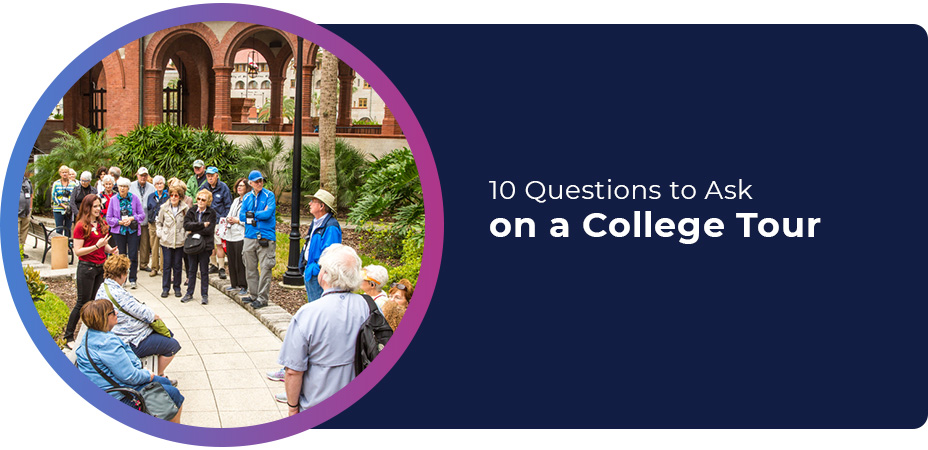
10 Questions to Ask on a College Tour
Spring is drawing near, and we all know what that means, right? Jean jackets! Frozen drinks! OTT prom proposals! But most importantly (if you’re applying to college , anyway), springtime means gearing up for college campus tours.
As you’re probably aware, many schools are having virtual college tours in lieu of in-person tours this year due to the coronavirus pandemic. Sure, it’s kind of a bummer to not get to see the school in person, but look on the bright side: You can now tour a bunch of schools without worrying about the cost of travel and additional expenses. And you get to do it all from the comfort of your own home!
Whether you’re going on an in-person college tour or participating in a virtual college fair , asking the right questions is key to getting all the juicy details about the school. Not sure what to ask your tour guide? Below, here are 10 questions to ask on a college tour that will help you get the most out of your visit.
1. Why did you choose this school?
This is a good opening question for your tour guide because it gets them thinking back to what initially drew them to the school. Follow-up questions could include, “How happy have you been at this school so far?” and “What, if anything, would you change about the school?”
2. Who would you NOT recommend this school for?
Keep in mind that most college tour guides are in love with their school and don’t have a bad word to say about it. For this reason, you should (politely) challenge their opinions about the school by asking them who might not be the best fit for this particular school. If you happen to match their description of someone who isn’t a good fit, well — at least you found out sooner rather than later, right?
3. What majors/programs are popular?
Whether you’re still undecided on a major or you want to know what programs the school is best known for, this is a good question to ask regardless. Already picked a major? Ask them to spill the tea on the reputation of your department/program.
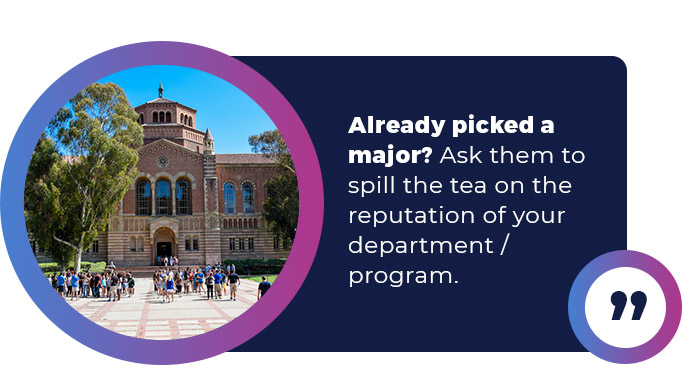
4. What types of scholarship opportunities are available?
You plan to apply for scholarships anyway, right? You might as well get the inside scoop on what kinds of scholarships and grants they have available on campus. Dig a little deeper by asking what the average financial aid package is and whether there are work-study opportunities available.
FIND COLLEGE SCHOLARSHIPS
5. How often are career fairs/campus recruiting events held?
Career fairs are common at most universities and colleges — as they should be. Both in-person and virtual career fairs can help you launch your career after college, so make sure these opportunities are abundant on campus. While you’re on the subject, ask about internship opportunities.
6. How accessible are the professors/administrators/financial aid officers, etc.?
These people can make or break your college success, so it’s important that they’re easily accessible and willing to do what they can to help!
7. What do students do for fun on campus? What about life off-campus?
Find out everything you can about campus life. After all, this is going to be your home for at least the next four years of your life. What is the social scene like? What do students do when they’re not studying? And, of course, the ultimate question every student must ask: How’s the food ?
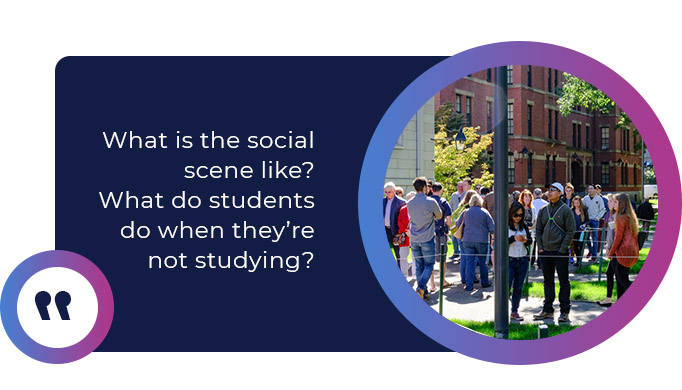
8. How diverse is the student body?
This is an important question to ask, especially if you can’t visit the campus in-person to see for yourself just how diverse the campus is. Not only is it vital that minority groups have representation on campus, but diversity on campus also benefits non-minority groups by exposing them to different backgrounds and perspectives. If you’re a minority, don’t forget to ask about support services and programs that support students like yourself.
9. What is the average class size for lower- and upper-division courses?
There is an ongoing debate regarding class size —specifically, whether smaller classes are actually better for learning outcomes. But the truth is, it may just come down to personal preference. At the very least, this question will give you a better idea of what to expect when you sign up for classes.
10. What kinds of academic support programs does the school have?
You want to choose a college that will help set you up for success. If you’re struggling in school, what resources will be available to help you? Be sure to ask about tutoring programs, computer labs, writing centers, and other programs that might support your undergraduate experience.
Asking the Important Questions
There are plenty of great questions to ask on a college tour that aren’t on this list, but, hopefully, this gave you a decent starting point. Just remember that you may have a limited amount of time to chat up a tour guide or college representative. Tackle the important questions first before you start asking things like, “How strong is the merch game?” and “Is a Jamba Juice within walking distance of the dorms?”
Happy touring!
GET STARTED WITH TALLO
Do you have any college touring experience? Or are you looking for advice from others who have been on college tours? Reach out to our Tallo Community . We have students and professionals who share their advice on everything from college tours to landing a job.
Image Credits:
Source: Bob Pool/Shutterstock
Source: David A Litman/Shutterstock
Source: Nick Beer/Shutterstock
RELATED POSTS

Scholarship Alert: Tallo’s $1,000 “STEM & Social Good” Scholarship

Unlock the Potential of Early Talent: Discover the Early Talent Playbook

Join Us at Stride, Inc.’s Promising Practices 2024 on March 1st!
Start charting your path today..
Connect with real educational and career-related opportunities.
Get Started
An Updated Guide to Virtual College Tours
Where to start.
Without the option to visit colleges in-person, virtual tours and online content can provide a bridge and help you gain a sense of a school from the comfort of your home. While a virtual visit may not be what you hoped for, adjusting your mindset and remaining open and curious can go a long way toward making the process fun and informative.
Even before Covid-19, many schools created virtual tours as a way to engage international and out-of-state students. School to school, the virtual offerings vary widely – some colleges have entire real-time tours posted on Youtube and 360-degree virtual tours , while others have short videos paired with image galleries and written content.
Because navigating university websites can be frustrating, we suggest that if you know what school you want to start with, skip straight to a quick “[College Name] Virtual Tour” Google search.
You can also browse colleges that offer tours on websites, such as YouVisit , CampusTours , and CampusReel . (On CampusReel, students upload videos, tours of dorms, and more to share, but students or parents must register to join.)
Prepare to be a little overwhelmed
Virtual tours offer a flood of information in the form of hundreds of videos, articles, images, and aerial shots of sunny campus quads. There is a lot of information spread across sprawling pages.
We recommend spacing out your virtual tours the same way you would in-person tours to give yourself time and space to judge each school on its own merits and to avoid missing out on key details because of fatigue.
One of the surprising benefits of the virtual tour? It’s okay to stop! Give a virtual tour an honest try – but one of the advantages of this type of engagement is that you don’t have to stick it out to the end if you can tell early on that the school is not a good fit for you.
Taking notes for research
Just like for a “ real ” tour, you should keep a notebook handy to jot down details that stick out to you or any resources that pique your interest.
Unlike a real tour, don’t forget you can hit the pause button, go back to hear a detail again, skip over general descriptions of majors or programs that don’t apply to you, and make browser bookmarks of anything that excites you.
Hopefully, you start every virtual tour with an open mind, but it’s still a good idea to start with a sense of what you hope to gain. Keep a running list of any specific degrees, programs, or opportunities mentioned by the tour guides that interest you so you can follow up with research.
It’s also a good idea to find out if the school you are touring will require you to write a Why College Essay should you decide to apply – if so, taking detailed notes now could help you write Why College Essays in the future.
Before the tour starts, create a list of headings in your notebook. The headings may include the names of majors you’re interested in exploring, a heading for campus life, another heading for school values, and a heading for special resources and opportunities.
Lastly, leave a big space under the heading of RESEARCH where you can note anything you want to find out more about later.
Questions to consider for further research:
- What special resources, like honors programs, are highlighted in the tour?
- What do they say about research and undergraduate involvement?
- Do they discuss internships or study abroad?
- What students have access to resources like makerspaces and special collections?
- What have alumni done with this major or degree program?
- What are the mentorship opportunities? What professors would you be excited to learn from and work with?
- How easy is it to study across disciplines?
- What career resources, student support services, and advising does the school offer?
Navigating buildings and tour stops
In the world of virtual tours, just as in real-world tours, “stops” at specific locations or buildings on campus are what provide the tour guide the opportunity to discuss majors, programs, and resources.
Some colleges are great about organizing tours by the majors and programs themselves, but for other schools, you have to look up what building houses your particular majors of interest, then navigate to that building/tour stop to hear about the majors and programs within it.
Again, enjoy the process of exploring and stay curious, but also feel free to skip any buildings/tour stops that have nothing to do with what draws you to that particular campus.
Pay attention to the details
Apart from the descriptions of parts of campus, what do you get to learn about your tour guides in the virtual tours?
Most schools will require guides to introduce themselves by sharing their names, where they are from, and their majors. Listen carefully: do any of the guides have surprising major combinations, like Chinese and art history, or math and sociology? Do the students mention they take part in any special degree or Honors programs within the college?
These details can offer clues about aspects of the school that the school wants to highlight, like how easy it is to pursue interdisciplinary study.
Listen for values
To learn more about a school’s values, listen to the aspects of the curriculum and campus that the videos and tour guides emphasize. Is there a lot of talk about working in teams or groups, a focus on a diverse student body, or an emphasis on career resources?
If a certain value is what draws you to a particular school, seek out specific examples of how the school engages with that value beyond its marketing materials. If service is important to you, for example, then do some research: how does the college actually demonstrate its commitment to service? Research the types of service opportunities offered and look to see whether the school integrates service initiatives into its academic offerings.
Go beyond the virtual tour
It is possible to have a more authentic virtual experience of a college culture beyond the typical YouVisit 360 degree tours (though these can be pretty cool if you use a virtual reality headset!).
Some colleges are finding creative ways to give you a glimpse of their campus. Villanova’s aerial campus tour or the current student blog posts under “Wish you were here” at William and Mary present an interesting new take on virtual tours.
You can even take advantage of a 24-hour live stream through a campus webcam lik e Arizona State University if you felt the urge to check-in on your dream college at any time of the day or night.
YouTube also offers a multitude of options – but be sure to take any unofficial content or student reviews on YouTube with an extra grain of salt. You can also check out the college’s Campus Events Calendar, its Admissions Blog, or explore the campus and surrounding area with Google Maps.
Finally, we recommend that after you view specific tours on university websites, you have a little fun watching informal tours on youtube like The Campus Crawl by Hafu (he has “Campus Crawls” for such schools at Stanford, University of Washington, NYU, UCLA, Berkeley, MIT and Harvard).
Connect with people when you can
Just because you can’t visit in person doesn’t mean there aren’t people at that school who would be willing to connect with you.
Don’t forget that in addition to live tours and webcams, some campuses are encouraging prospective students to attend virtual information sessions and events. Tulane offers both of these and the opportunity to set up a virtual interview with an admissions officer.
Some schools are offering online chats with admissions officers and virtual Zoom information sessions. Certain schools are even offering the opportunity to sit in on class lectures!
If you have a specific question about an academic course, consider emailing the professor who teaches it. Or, if you’re excited about a major or program, reach out to the department chair or advisor. Make sure to ask thoughtful questions – questions that can’t be answered with a simple Google search! – and allow extra time for a response during this still-hectic period of adjustment for everyone. If you don’t hear back after a week or so, you can send a polite follow-up note.
Reach out to your family and friends – could you get connected with any alumni who could provide valuable insights into the school? LinkedIn and alumni networks can also be useful tools for creating connections.
If you find an alum willing to chat, utilize him or her as a resource! Ask any questions you may have about how accessible their professors are, how they joined and engaged in the campus community, and whether they have school-specific tips or insights they wish they’d known while they were applying.
A final thought
This is your process, so focus on finding ways to engage that keep you interested. Consider looking up the work of professors and alumni. Search for lectures that are available online. Read the school’s Twitter feed. Schedule a Zoom meeting to do a virtual tour with your friends who are also excited about that school – and then compare and share notes!
Virtual tours offer a taste of what a college has to offer, but just like in-person tours, ultimately what you gain – the depth and range of insights you glean – is up to you.
Share this Article
Financial aid 101: the basics every family should know.
This year, the Department of Education has been working out issues with the new version of the Free Application for...
How to Contact Admissions
No matter where you are in the college process, you will eventually want to reach out to someone on a...
Ivy Experience’s Spring Webinar Schedule
We are excited to announce our full schedule of webinars this spring! See below for topics, dates, and registration links....
- Apply Apply
- Request Information Get Info
- Visit SPC Visit SPC
- Recognitions
- College Offices

St. Philip's College Cybersecurity (NCAECD)
The National Security Agency and the Department of Homeland Security have reaffirmed St. Philip's College as a National Center of Academic Excellence in Cyber Defense Two-Year Education. This designation covers academic years 2014 through 2020.
- Find Your Program
- Academic Calendar
- Distance Learning
- Workforce Training Network
- Academic Resources
- High School Programs
- How to Apply
- Pay for College
- Specific Populations
- Current Students
- Campus Life
- Your Future Starts Here
- Publications
- Social Media
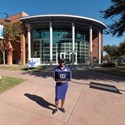
St. Philip's College Virtual Tour
The interactive tour includes video interviews and 360-degree panoramic views of 20 different locations across the MLK and SWC campuses. Visitors can interact with hot spots throughout the tour and listen to audio guides describing the programs and resources available in each building.
- Academic Catalog
- Campus Maps
- Virtual Tour
- Employee Portal
- Alamo Alert
- Dining on Campus
- Counseling Services
- Feed the Tiger
- Tutoring Centers
- St. Philip’s College Hosts H-E-B Black Box Theater Groundbreaking
March 28, 2024
SPC Marketing & Strategic Communications
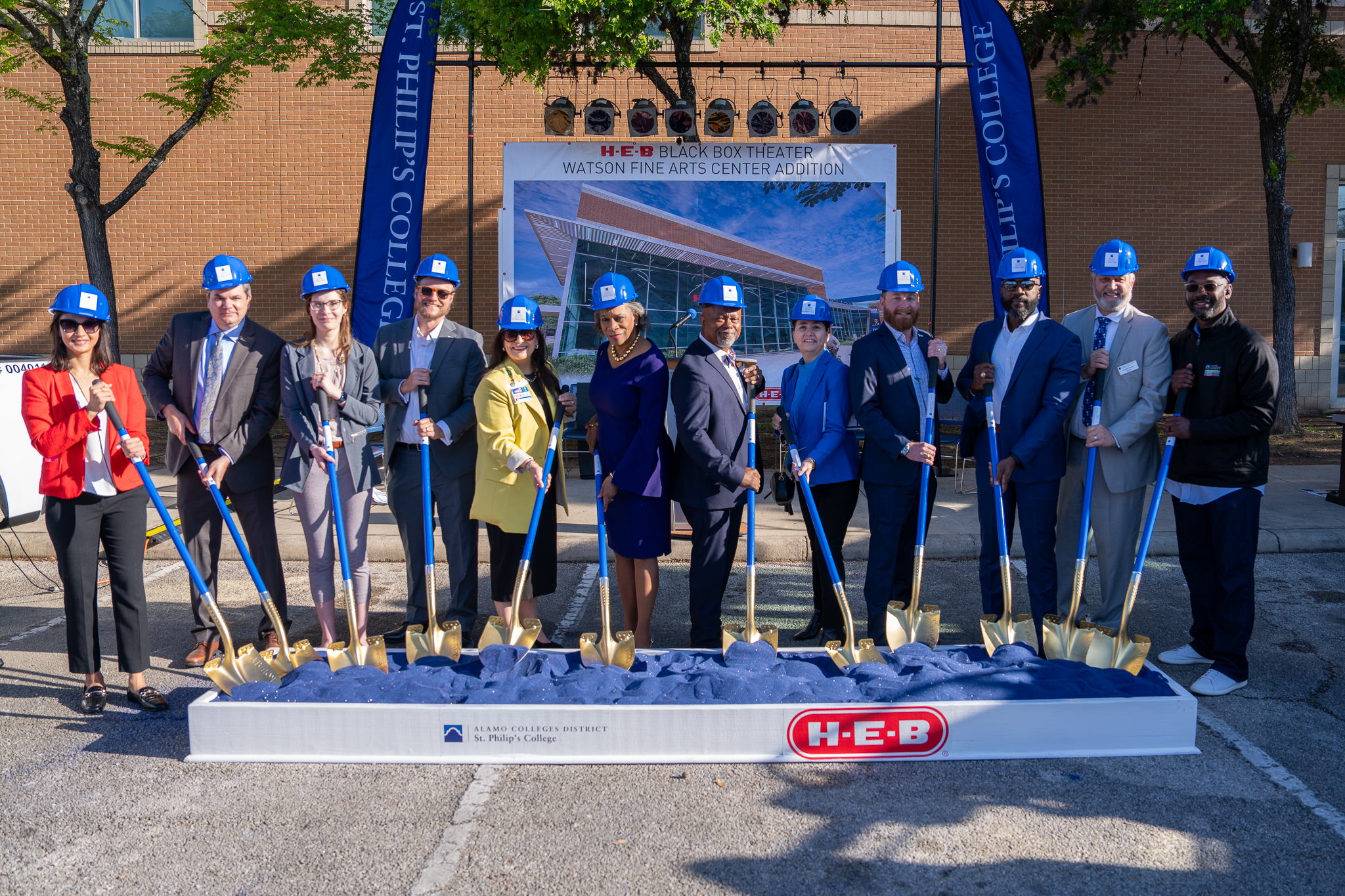
St. Philip’s College (SPC) hosted a successful groundbreaking on Thursday, March 28, marking a significant milestone with the H-E-B Black Box Theater. This theater will create a new wing of the Watson Fine Center, which is home to the Fine Arts and Kinesiology Department.
Construction of the H-E-B Black Box Theater has been made possible with the generous support of H-E-B. The company made a substantial $1 million donation towards the project. Additionally, funding from the U.S. Department of Education, Title III program has played a vital role in making this construction project possible.
“We are longstanding supporters of education and arts initiatives across the state, and we’re proud to continue our support of St. Philip’s and its 126-year history,” said Winell Herron, H-E-B Group Vice President Public Affairs, Diversity, and Environmental Affairs. “We believe in the profound impact education has on our lives, and we’re committed to helping our partners in education provide opportunities that drive creativity and innovation.”
The impact of the H-E-B Black Box Theater extends beyond its physical dimensions of 20,000 square feet and a full capacity of 200 seats. With the potential to serve over 1,000 SPC students, it will be a hub for artistic learning and innovation. Moreover, it will provide an invaluable platform for the community to engage with the arts and foster a deeper appreciation for cultural diversity.
St. Philip’s College President, Dr. Adena Williams Loston, expressed enthusiasm at the groundbreaking event by saying, “This state-of-the-art facility will enhance our teaching and learning spaces and puts our students ahead of the curve when it comes to learning performance standards with acting, dance, music, and set design. The groundbreaking of this new theater is another step towards breaking down barriers in education for St. Philip’s College students, barriers in opportunities for the arts industry, and barriers toward providing increased access to the arts on the east side of San Antonio.”
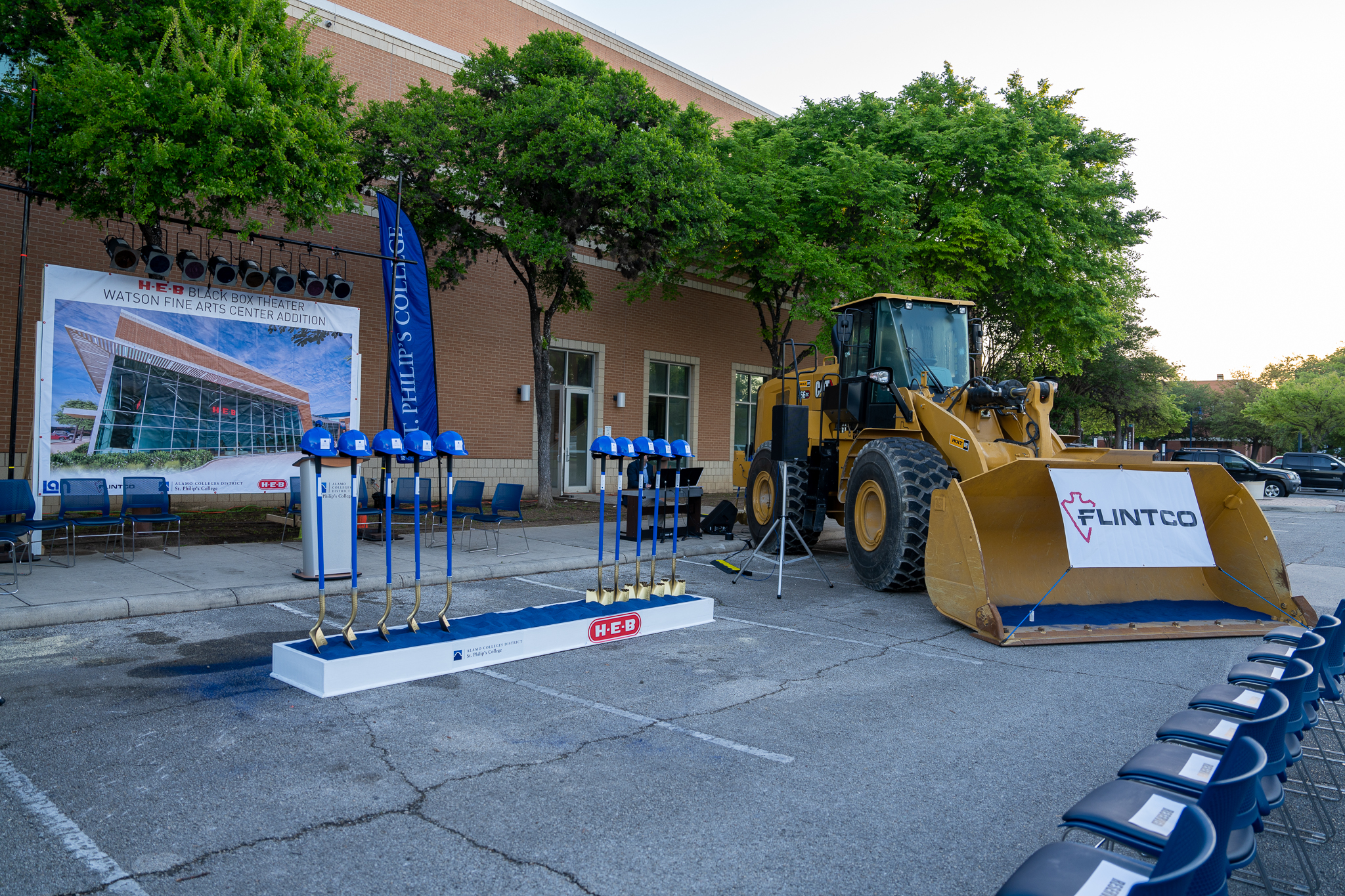
- Remembering Former St. Philip's College President Dr. Gloria Jackson
- SPC Proud : Adetutu Ezra
- MyU : For Students, Faculty, and Staff
Aerospace Engineering and Mechanics Experience 2024
Newly admitted students, welcome to CSE! Join the Department of Aerospace Engineering and Mechanics (AEM) for tours and the opportunity to meet us and ask questions, whether you're a first-year student or a transfer student.
Learn More and Register
- Major overview
- CSE Student Voices video
- Why I chose my major video
- What can I do with a major in aerospace engineering and mechanics?
- Four-year plan
- Department of Aerospace Engineering and Mechanics website
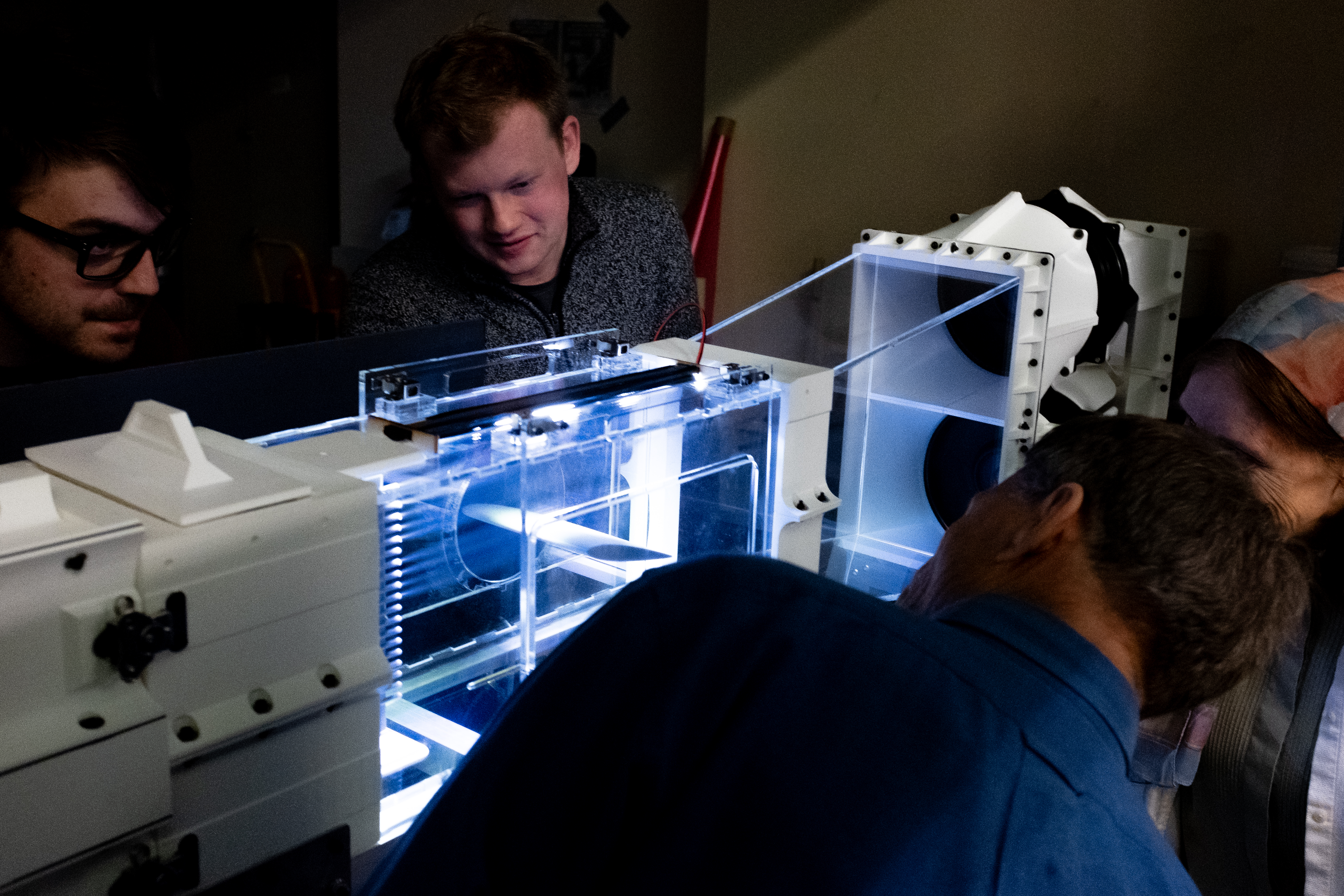
Lind Hall, Room 105
- Future undergraduate students
- Future transfer students
- Future graduate students
- Future international students
- Diversity and Inclusion Opportunities
- Learn abroad
- Living Learning Communities
- Mentor programs
- Programs for women
- Student groups
- Visit, Apply & Next Steps
- Information for current students
- Departments and majors overview
- Departments
- Undergraduate majors
- Graduate programs
- Integrated Degree Programs
- Additional degree-granting programs
- Online learning
- Academic Advising overview
- Academic Advising FAQ
- Academic Advising Blog
- Appointments and drop-ins
- Academic support
- Commencement
- Four-year plans
- Honors advising
- Policies, procedures, and forms
- Career Services overview
- Resumes and cover letters
- Jobs and internships
- Interviews and job offers
- CSE Career Fair
- Major and career exploration
- Graduate school
- Collegiate Life overview
- Scholarships
- Diversity & Inclusivity Alliance
- Anderson Student Innovation Labs
- Information for alumni
- Get engaged with CSE
- Upcoming events
- CSE Alumni Society Board
- Alumni volunteer interest form
- Golden Medallion Society Reunion
- 50-Year Reunion
- Alumni honors and awards
- Outstanding Achievement
- Alumni Service
- Distinguished Leadership
- Honorary Doctorate Degrees
- Nobel Laureates
- Alumni resources
- Alumni career resources
- Alumni news outlets
- CSE branded clothing
- International alumni resources
- Inventing Tomorrow magazine
- Update your info
- CSE giving overview
- Why give to CSE?
- College priorities
- Give online now
- External relations
- Giving priorities
- Donor stories
- Impact of giving
- Ways to give to CSE
- Matching gifts
- CSE directories
- Invest in your company and the future
- Recruit our students
- Connect with researchers
- K-12 initiatives
- Diversity initiatives
- Research news
- Give to CSE
- CSE priorities
- Corporate relations
- Information for faculty and staff
- Administrative offices overview
- Office of the Dean
- Academic affairs
- Finance and Operations
- Communications
- Human resources
- Undergraduate programs and student services
- CSE Committees
- CSE policies overview
- Academic policies
- Faculty hiring and tenure policies
- Finance policies and information
- Graduate education policies
- Human resources policies
- Research policies
- Research overview
- Research centers and facilities
- Research proposal submission process
- Research safety
- Award-winning CSE faculty
- National academies
- University awards
- Honorary professorships
- Collegiate awards
- Other CSE honors and awards
- Staff awards
- Performance Management Process
- Work. With Flexibility in CSE
- K-12 outreach overview
- Summer camps
- Outreach events
- Enrichment programs
- Field trips and tours
- CSE K-12 Virtual Classroom Resources
- Educator development
- Sponsor an event

IMAGES
VIDEO
COMMENTS
118 Great Questions to Ask on a College Tour. Posted by Rebecca Safier. College Admissions. Touring your prospective colleges is a great opportunity to learn from the people who study, work, and teach on campus. By keeping your eyes and ears open, you can gain a strong sense of a school and its culture, far beyond the facts and figures on its ...
Since you can't take college tours in person, one of the best ways to get to know if a school you're considering is right for you is a virtual college tour. Not only are virtual campus tours a great way to see the campus and get a feel for the culture, but they're also a great way to meet someone from the school, usually an admissions ...
50 Questions to Ask on a College Visit. More. Getty Images. Prospective students can ask about housing on and off campus. A college visit offers prospective students a chance to look past the ...
Info Sessions: This is something that is traditionally done before on-campus tours, but colleges have transitioned these online as well. This can be attached to a virtual tour or solo. Typically, this is a 15-30 minute overview of a college - everything from academics, admissions, student life, and more. Virtual & Live Tours: Many colleges ...
According to IST Campus Tours, an independent student travel tour service, families with college-bound students can spend up to $3,500 just for a campus visit. With the cost of air travel, meals, and accommodations adding up, virtual tours are a good option for those who can't swing in-person visits.
Questions to Ask on a Virtual College Tour. When embarking on virtual college tours, it's crucial to keep some essential questions in mind and ask during the exploration process. These questions will help you gather valuable information and insights about each college, ensuring that you make an informed decision about your higher education ...
Generating a view on a college culture without visiting the campus can be difficult but is one of the most important things you pick up on when you tour a campus in person. In lieu of this, you can still get an idea of the college culture through social media. In order to see how students are, try finding "a day in the life of a student at ...
1 Do Talk to the College to Learn About Official Tours. 2 Don't Go Overboard with Virtual College Tours. 3 Do Learn About the Formats of the Virtual College Tours. 4 Do Have Questions Ready Before College Online Tours. 5 Don't Forget to Hit the Record Button. 6 Do Create a Distraction-Free Zone for Virtual College Tours.
The University of California—Berkeley also offers 360-degree virtual tours for prospective students. Previously, the school was posting YouTube videos and virtual question-and-answer sessions ...
1. Be sure to ask the right questions. When you ask questions specific to what you care about as a prospective student, you'll develop a clearer picture of which schools are a good fit. Since many virtual tours don't have a live guide, you'll want to contact admissions counselors to fill in the blanks left from your virtual experience. To ...
The Staff of The Princeton Review. For more than 40 years, students and families have trusted The Princeton Review to help them get into their dream schools. We help students succeed in high school and beyond by giving them resources for better grades, better test scores, and stronger college applications. Follow us on Twitter: @ThePrincetonRev.
You can also get a taste of what you'll experience on campus through our virtual tour. And if you have questions you'd like to ask us now, please contact us anytime at [email protected] 570-577-3000. Stay up to date throughout your Bucknell journey. Join our contact list.
3. Engage with the tour guide: Don't be afraid to ask questions during the tour or in chat rooms if they're available. This can help you get a feel for the campus culture and the student experience. 4. Attend virtual events: Many colleges also offer virtual events, such as info sessions, webinars, or student panels.
Group 2: These should be questions that directly relate to the university you are visiting/researching. They can be about a specific dorm hall or a popular study abroad program. Again, this question group can contain some inquiries that apply to more than one university but strive to make them as specific as possible.
Virtual college tours allow students to access information at any time and refer to these virtual college tours when questions arise. The pandemic also resulted in additional safety measures for college campus tours. At the height of the coronavirus pandemic, college campus tours were completely halted. As campus tours resumed, colleges adopted ...
YouVisit tours also include prerecorded student guides to walk you through the tour (as well as translations in English, Spanish, and Mandarin), and most tours offer space to ask questions of college administrators. CampusTours offers virtual tours of nearly 2,000 schools in the United States and around the world. Most tours include fine-tuned ...
I have a virtual college tour scheduled with a small liberal arts college next week. I am kinda clueless as to what questions to ask them during/after the tour. This tour isn't considered as part of the application so my chances won't be hurt/improve due to this tour.
After you tour our campus virtually, take the next step and join us for an online information session! In these hour-long sessions, an admission officer and a student will share information about Harvard College and answer the questions you submit through the chat. View our schedule of upcoming sessions and register today!
College tour guides say you should be on time, let students take the lead during campus visits, and get all your questions answered. Menu icon A vertical stack of three evenly spaced horizontal lines.
A perfect time to ask about costs is on the campus tour. Be specific! Ask about the cost of attendance, any hidden costs, fees, room and board, and even transportation. But also ask about ...
Virtual college tours are an excellent alternative to in-person visits. Virtual tours allow you to explore college campuses at your own pace, typically with useful features like 360° views and student-narrated audio/video. In fact, you will often see and learn much more during a virtual tour than is possible through an in-person tour, given ...
1. Why did you choose this school? This is a good opening question for your tour guide because it gets them thinking back to what initially drew them to the school. Follow-up questions could include, "How happy have you been at this school so far?" and "What, if anything, would you change about the school?". 2.
Even before Covid-19, many schools created virtual tours as a way to engage international and out-of-state students. School to school, the virtual offerings vary widely - some colleges have entire real-time tours posted on Youtube and 360-degree virtual tours, while others have short videos paired with image galleries and written content.
St. Philip's College Virtual Tour. The interactive tour includes video interviews and 360-degree panoramic views of 20 different locations across the MLK and SWC campuses. Visitors can interact with hot spots throughout the tour and listen to audio guides describing the programs and resources available in each building.
Congratulations! Celebrate with other admitted transfer students in a Zoom hangout on April 4 at 8 p.m. ET. Find more information below under Save the Date. WELCOME Being admitted to Williams is no small feat-we hope you take some time to celebrate! Over the next few weeks, this site will be updated with new videos, stories and other ways to connect with the Williams community, so make sure to ...
Newly admitted students, welcome to CSE! Join the Department of Aerospace Engineering and Mechanics (AEM) for tours and the opportunity to meet us and ask questions, whether you're a first-year student or a transfer student. Learn More and Register Other AEM resourcesMajor overviewCSE Student Voices videoWhy I chose my major videoWhat can I do with a major in aerospace engineering and ...
47 likes, 0 comments - revere.aesd on October 5, 2023: "Ms Medina's 5th graders took virtual college tours today & prepared questions for our guest speakers tomorrow."